KEO News Wire
Rassie’s hardest Boks call: To cull or curate for RWC 2027?
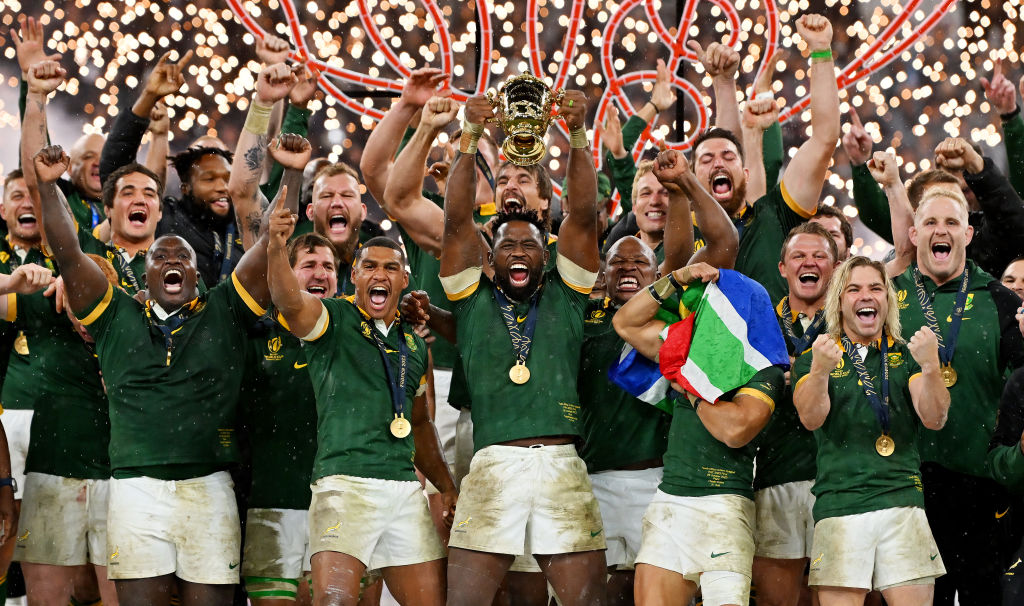
Rassie Erasmus’s biggest Boks challenge is not the All Blacks at Eden Park on Saturday, 6th September. It is whether to cull or curate and what to do to win a third successive Rugby World Cup in Australia in 2027. When and who does he say goodbye to? writes Mark Keohane.
I’ve watched Rassie Erasmus make big, ruthless and brilliant calls for seven years.
I have also watched him roll the dice, look to the heavens and pray.
Three one-point wins in the 2023 RWC play-offs were not down to four magnificent years of planning or the work of a soothsayer.
The Boks won the World Cup in 2023 thanks to the guy, Handre Pollard, who both Rassie and Jacques Nienaber left out of the RWC squad, while they picked four scrumhalves, played one of them on the wing in the group stages and in the final only selected one scrumhalf in the match-day squad of 23.
So please don’t tell me that was genius.
Handre Pollard was never meant to be at the 2023 RWC by choice of the coaches.
When the Boks at the 2023 RWC were kicking at 44 percent at posts pre Pollard’s arrival, as an injury replacement for the injured hooker Malcolm Marx, Erasmus was bullish that he was not concerned about a 44 percent strike rate.
Pollard bailed him and Nienaber out.
There was no master plan to that, but the ice in the veins and determination of a great wearing No 10 for the Boks was the bailout.
No Pollard in the play-offs, no World Cup win and no doctorate for Rassie.
Boks will not win 2027 World Cup without Jacques Nienaber
Don’t be seduced by the trophies.
Pollard won two World Cups for the Boks, in 2019 and 2023, and Morne Steyn, not a consideration for the Boks in the Lions series initially, came out and won the series for Erasmus and Nienaber in 2021.
Goalkicking has been at the heart of every Boks success story.
All Blacks flyhalf Beauden Barrett missed a sitter of a conversion in Wellington in 2018 to level scores at 36-all. The Boks won 36-34 and folklore describes that as the moment the plan came together. The other Barrett, Jordie, missed a penalty and Richie Mo’unga missed a conversion in the Paris 2023 final.
Those kicks go over and rugby history looks very different.
South African-born All Blacks flyhalf Andrew Mehrtens misses with a drop goal on 79 minutes to win the All Blacks the 1995 World Cup final and our landscape in South Africa looks very different post Joel Stransky’s extra-time title-winning drop goal.
That was not the coach’s call in 95. Neither was it in 2023.
Pollard’s 13 from 13 successes at the 2023 RWC should never have happened because he was not in the squad selected to go to France.
Context and perspective.
That was never part of the ‘never challenge’ master plan.
There was no master plan.
Gold dust was sprinkled on Erasmus and Nienaber that day, and, for the most, gold dust continued to be sprinkled into 2024.
Now it is different in 2025.
Now it needs a plan and not a group of generational players who will be remembered as the best in their positions, and a missed kick from in front or 13 from 13 from a player not in the original group.
Erasmus, without his anchor Nienaber at the moment, must make some calls.
Win now, build for 2026 or all in for 2027.
Crazy how success makes one forget what got you success.
Erasmus in 2025 has forgotten what got him his Varsity doctorate.
He needs to pause before he believes his own hype.
Rassie, right now for me, is like the boxer who ate pasta, ran at five in the AM and worked a day job to win the title.
Once he won it, he believed he couldn’t eat pasta because a dietician told him, he could’t wake before five because some app told him and could not work a day job to defend the World Cup title because he was a World Cup winner.
Rassie’s biggest challenge is not the opposition but those players who won him back-to-back World Cup titles.
And his understanding of who he is.
Nigel: Fassi lucky not to get yellow
It is also his mindset, his humility and the acceptance he comes from Despatch and not Beverly Hills.
For the record, the Springboks are the first team to win back-to-back World Cups away from home (2019 and 2023).
That second title was won by a group with an average age around 30, the oldest at the tournament.
That age brought steel in the clutch moments, but it also sets a ticking clock. History tells you most World Cup winners ride a sweet spot in the late 20s; the Boks defied it. Can they do it again in 2027 with a core that will be 30-plus—some deep into their 30s—or is it time to turn the wheel?
The calendar forces the question.
From 2026, South Africa and New Zealand revive traditional long tours under the “Greatest Rugby Rivalry” banner: three (and possibly four) Tests and midweek fixtures in South Africa, then the return series in 2030.
It’s a commercial and sporting feast—and a selection headache. Do you back the double-world champions en masse for one last epic, then change, or do you start the cull at the end of this season to build a team that peaks in Australia in 2027?
Here’s my view, shaped by what Rassie has proved in terms of values, clarity, timing and honesty.
1) Don’t rip up the jersey at the end of 2025.
Mass culls breed chaos.
Rassie’s 2018 shows the price of starting over: he wore the growing pains (7 losses from 14 starts). Most coaches are fired after such a first season.
But this squad isn’t where 2018 was; it’s a champion group with a winning language. You protect that culture while you re-tool, not by detonating it. Tell the stalwarts—privately, now—where they fit across the next 24 months, and pick with a map, not a microscope.
2) Use 2026 as the handover, not the last dance.
The All Blacks tour of South Africa in 2026 will define selection courage. I would keep a spine of the double-World Cup winners through that series—two tightheads across the window, two hookers, one of the senior locks, one of the loose forward leaders, the general at 10, and a single back-three elder statesman. Around them, flood in the next wave and make 40% of every match-day 23 players who will still be in their athletic prime in 2027–29. It’s respectful to the greats and ruthless about the future, which is the Rassie way.
3) Set non-negotiable gates.
Selection can’t be vibes and highlight reels. Put three gates in writing and stick to them:
-
Minutes & availability: If a veteran can’t bank Test minutes across 2026 because of injury or workload management, he gives way to the successor for the following window.
-
Speed audit: Test rugby is a speed game. GPS doesn’t lie. If repeat speed/effort drops below role benchmarks, sentiment can’t save a jersey.
-
Versatility tax: The 6–2 or 7–1 bench split works because certain seniors cover multiple roles; if they no longer can, the selection math changes.
4) Name the succession in each channel.
This isn’t a shopping list; it’s a blueprint.
-
-
Front row: Keep one of the great tightheads, one hooker mentor and one loosehead lock-pick for 2026; bring the next-gen hooker and a genuine scrummaging tighthead into proper Test minutes now, not in a 2027 panic.
-
Locks: One of the Centurions leads 2026; the partner role must be owned by a 24–27-year-old by the end of that tour, with a third lock blooded as a line-out caller.
-
Loose trio: Retain one leader through 2026; elevate two specialist 6/8 athletes with range and line-out value. For me, Kolisi has to be there, even if you only get 20 on-field minutes from him when it matters most.
-
9–10: The Boks have lived on control at 10 and chaos at 9. Keep the conductor at 10 through 2026, but give his heir 400–600 Test minutes by end-2026. At 9, settle on a top two and stop rotating for the sake of it; partnership beats auditions.
-
Midfield: The championship axis has been continuity and defence IQ. Keep one of the two senior centres and accelerate a power-runner and a distributor who can kick.
-
Back three: No emotion here. Pick on repeat speed and air dominance. One senior winger stays through 2026; the rest must be prime-age flyers who can own the high ball.
-
5) Communicate the “why”.
The talk is that Rassie’s lack of empathy is not very popular within the squad. Everything he detested as a player, he is doing as a coach. Treat these buggers with respect. They won you everything. Don’t be a bully and don’t be an arsehole. I have heard too many stories that too much of the latter has crept into the guy who returned to South Africa to save the Boks.
Rassie needs humility.
Forget ‘Dr Rassie’ and ‘He is in your Head …’
You can’t be playing that at the stadium when Australia are pumping you at Ellis Park, you can’t be playing that when Ireland is beating you in South Africa …’
Perspective please.
The players who carried South Africa to Yokohama and Saint-Denis deserve more than a cold press release.
Rassie can be clinical, but I would like to think that he is not careless. You look those men in the eye and explain the plan. You let them choose their exit. For me, it is ~after the 2026 All Blacks tour, after a home send-off—because that dignity doesn’t cost you performance; it buys you legacy.
Why this timeline works
-
It respects reality. The 2023 group’s age profile was an outlier—oldest at the tournament—and Rassie himself said the average age hovered at 30. The odds of projecting the same cohort to win again at 33–35 are mathematically worse than regenerating into that historical late-20s sweet spot by 2027. You don’t chase lightning; you reload.
-
It mirrors Rassie’s best habit. He’s never been afraid to suffer short-term pain to win the long game, as 2018 showed. But he also knows when continuity beats churn. This plan splits the difference. I hope Rassie reads this.
-
It leverages 2026. That tour isn’t just romance; it’s a live-fire exam against the only team who can match South Africa for big-moment muscle memory. If the next core grows up there—under the lights, under the noise—2027 becomes a campaign and not a gamble. The schedule exists; use it.
The pushback I expect
‘Don’t you owe the double-champs the right to defend until they drop?’
No.
You owe them honesty and one last summit worthy of their careers. The 2026 All Blacks series is exactly that. It lets South Africa celebrate them properly and gives the next wave the best classroom in rugby: three Tests against New Zealand with a nation’s attention on every ruck, play and kick at posts.
‘What if form collapses in 2025—doesn’t that force a cull?’
Poor results shouldn’t make permanent policy. Read Ellis Park, 38 unanswered points conceded and am embarrassing night for South Africans who paid upwards of R2000 to attend the game, individually.
React to individuals and not headlines. If a senior star’s floor drops below Test level, move earlier. But don’t confuse one campaign’s turbulence with a mandate for mass exits.
‘Isn’t history against a 30-plus champion?
Yes—and that’s the point. The Boks defied history in 2023; you don’t plan on defying it twice the same way. You build toward the age profile that wins most often, with just enough grizzled experience to anchor tight knockout games.
My message to Rassie – use it brother or lose it …
Cull?
No …
Curate?
Yes …
The end of this season is the wrong time for sweeping goodbyes.
The right time is after the 2026 All Blacks tour, with everyone clear from now how that end game looks.
Keep the spine for those five November 2025 Test matches.
Elevate the heirs immediately and relentlessly across 2025–26.
Make 2026 the handover in plain sight, not a farewell festival.
Enter 2027 with a squad whose heartbeat is 27–29, flanked by a half-dozen double-world champions who still move like starters and think like closers.
You did that in 2019 and you won the big one.
That’s how you respect the past without mortgaging the future.
That’s how you give South Africa its best shot at the most outrageous hat-trick in rugby.
And that’s the kind of hard, human decision Rassie Erasmus has made before—and will have to make again.
Can Rassie make it again?
I am not sure.
Does he remember he comes from Despatch?
I am not sure.
I love the guy, but there is so much not to love about him when he sits on the pedestal.
He is such a lekker oke when he mocks the ones on the pedestal and such a let down when he is the tone-deaf oke sitting on the pedestal.
Does he remember 7/14 in his first Test season and all the good goalkicking fortune?
No.
I just want to remind him about that season, who is he and where he comes from.
I also want to remind him about his time as a Test player with the Boks, why Nick Mallett so loved him and Harry Viljoen did not.
I want him to think about his contribution then, his behaviour and his mentality as a player.
To quote Rassie, he would not have picked the latter-day Rassie to play for the Springboks.
Equally, every coach would have picked the mid-20s Rassie, on ability alone.
Rassie, as a player and coach, is the determining factor in love and no love. He got love and he got no love.
Right now, I don’t know if he can distinguish between the two.
What I will tell him, is a decade from now, he could be as lonely as Jake White when it comes to who talks to him.
The game moves on.
Whatever happens post 2027 or 2031, a new guy will arrive and rugby life in South Africa will move on.
This message Rassie will give to his back to back RWC winners is that.
The message I want to give to him is the same.
Once you are gone brother, no one will care for you.
So care now, and be that innovator who is not seduced by the now but who is so articulate in what he wants for tomorrow.
Will Rassie get it?
I don’t know.
I have seen enough to know he won’t, but I have hope, historically, that he will if he is true to his Despatch roots.
What I do know is he will come calling when he is no longer there, which will be embarrassing for who he calls, and whoever takes that call.
Still!
I won’t give up believing that he believes in the game more than he believes in his own self-importance, ego and his his self-appointed cheer leaders.
Boks by 10.
ALWAYS
Next weekend, at Eden Park in Auckland, and in 2027.
International Rugby
Bok Damian de Allende is the best No 12 in the world
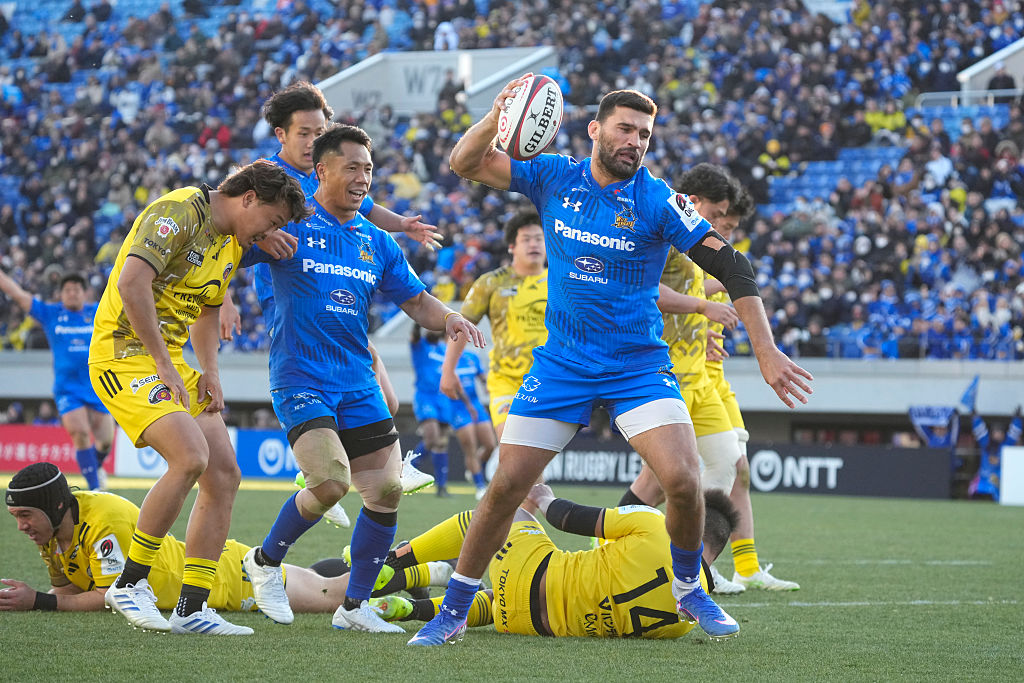
Springboks and Wild Knights Damian de Allende continues to set the standards among No 12s in world rugby. He is the best – and has been for some time.
In the Keo & Zels show earlier this week, there was agreement that De Allende remains the standout No 12 in the game.
Keo: Damian de Allende has done it all. Two World Cups. Rugby Championships. Outstanding for Munster in the URC and Investec Champions Cup. A superstar in Japan. A force for the Stormers and Western Province.
Yet when the “best No 12 in the world” debate starts, his name is often an afterthought.
Ireland’s Stu McCloskey has had a strong Six Nations and suddenly some commentators are calling him the benchmark. That’s recency bias. De Allende has been the benchmark for a decade.
He is the glue in the Springbok midfield. When he plays, they are a different side. When he doesn’t, you feel it. Sonny Bill Williams said last season that the most undervalued piece of the South African World Cup puzzle is Damian de Allende. He’s right.
De Allende has strength in contact, a complete passing game and a rugby IQ that the public underrates but coaches don’t. Tony Brown rates him the best passer in the Bok set-up.
The move to Japan extended his career. League One is improving every season, but it’s not the weekly collision of the URC or Top 14. It has preserved him and I believe he has another World Cup in him.
If we’re picking a No 12 tomorrow? I take him. Every time. He is the best No 12 in the world.
ALL BLACKS GREATS RAVE ABOUT DE ALLENDE
Zels:
That’s the difference between media noise and player reality.
In player circles, “Doogz” gets huge respect. It’s the same story as Franco Mostert. At the Lions people asked what he actually did. Then he became a Bok and suddenly everyone understood the work rate and detail.
De Allende does the heavy lifting. He wins collisions. He cleans up. He organises. He makes the right decision more often than not. Players and coaches see it immediately.
In his prime? For me, absolutely – he’s the best 12 in world rugby.
RECALL: HOW RASSIE REINVENTED DE ALLENDE IN 2019
Last weekend he played his 50th match for the Wild Knights in Japan – another reminder of his consistency and professionalism. Whether it was Milnerton High in Cape Town, a World Cup final with the Springboks, Munster on a European night, or League One in Japan, the standard never drops.
ALL BLACKS MIDFIELD MASTER SONNY BILL WILLIAMS GIVES DOOGZ HIS DUES
View this post on Instagram
KEO News Wire
South Africa’s State of Origin – our Schools system works
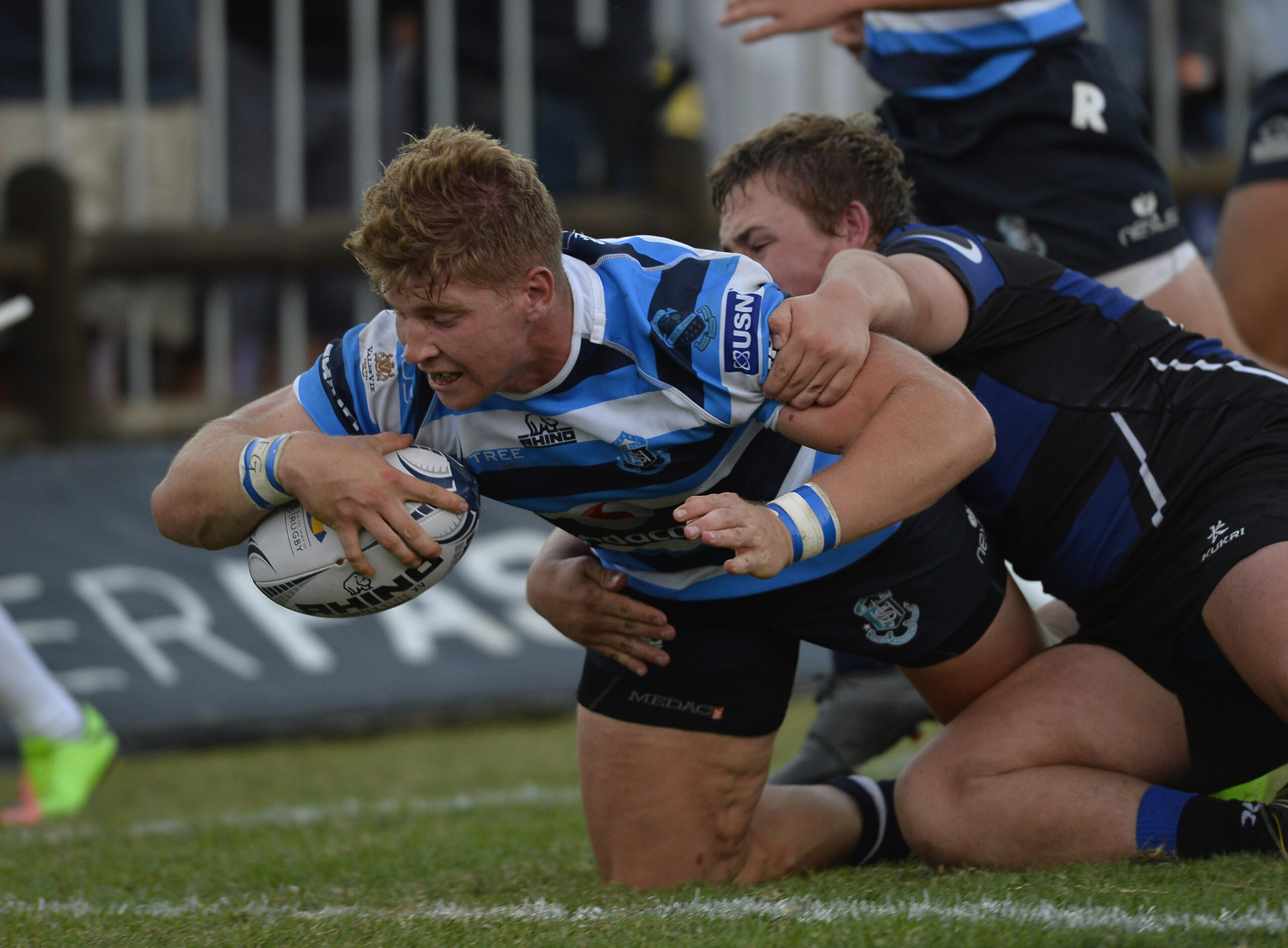
The elite layer is concentrated but across the Bulls, Lions, Sharks and Stormers there are 64 schools represented. That tells you the base of the South African game is broad and that the state of Origin on this celebratory United Rugby Championship Origin weekend is healthy.
The natural feeder system is in Paarl and Stellenbosch. It has always been the case with Paarl Boys High, Paarl Gim, Paul Roos and Boland Landbou producing elite professional players with each matric cycle.
Grey College, in the past 30 years, has owned the title of a Springboks and professional rugby player factory more than any other school in the country. Others, like Boshaai, Gim and Paul Roos are always present, but over this period Grey College has produced the greatest number.
In this URC season, Grey College and Boshaai share the top spot of providing 18 players, split across all four South African URC clubs.
Krugersdorp’s Monument (Lions) and Bishops (Stormers) are a celebration of home grown talent graduating from schoolboy to professional rugby without having to relocate, while the traditional rugby powerhouses in Kwazulu-Natal (Glenwood, Hilton, Westville and Maritzburg College) continue to make a statement that local is lekker in KZN.
The Bulls, of the four SA clubs, have the most extensive recruitment drive, and have over the years consistently been leaders in securing the most sought after talent, be it out of school or at a later stage.
Bloemfontein, by way of Grey College, and Paarl, are greater feeders for the Bulls, who have not relied exclusively on the Schools Big Five. Many a player from local schools has proven good enough to be contracted.
SA URC ORIGIN – THE SCHOOLS
18 Players
-
Grey College
-
Paarl Boys’ High
12 Players
-
Paul Roos Gymnasium
10 Players
-
Paarl Gimnasium
9 Players
-
Hoërskool Monument
8 Players
-
Glenwood High School
-
Bishops (Diocesan College)
5 Players
-
Westville Boys’ High School
-
Maritzburg College
4 Players
-
Afrikaanse Hoër Seunskool (Affies)
-
Hilton College
3 Players
-
Northcliff High School
-
King Edward VII School (KES)
2 Players
-
St Albans College
-
Hoër Landbouskool Boland
-
Hoërskool Garsfontein
-
Hoër Landbouskool Oakdale
-
Michaelhouse
-
Jeppe High School for Boys
-
Potchefstroom Gimnasium
1 Player Each
-
St Stithians
-
Bersig
-
Hudson Park
-
Linden
-
SACS
-
Stellenberg
-
Transvalia
-
Frikkie Meyer
-
Fichardtpark
-
Graeme College
-
Ben Vorster
-
EG Jansen
-
St Andrew’s College (Makhanda)
-
Dale College
-
HTS Middelburg
-
Durban High School (DHS)
-
Hoërskool Klerksdorp
-
Hoërskool Tygerberg
-
Huguenot High School
-
Grey High School
-
Jim Mvabaza Senior Secondary
-
Piet Retief High School
-
Churchill Boys High School
-
HTS Louis Botha
-
Queens College
-
Hoërskool Oos-Moot
-
Diamantveld
-
Wonderboom
-
Outeniqua High School
-
Hoërskool Eldoraigne
-
Northwood
-
St John’s College
-
Rondebosch Boys’ High
-
Wynberg Boys’ High
-
Hoërskool Pietersburg
-
Welkom Gimnasium
-
Hoërskool Brandwag
-
Hermanus High School
-
Hoërskool Riebeeckstad
-
Klein Nederburg
-
Hoërskool Standerton
-
Total schools represented: 64
-
2 schools with 18 players
-
1 school with 12
-
1 school with 10
-
1 school with 9
-
2 schools with 8
-
2 schools with 5
-
2 schools with 4
-
2 schools with 3
-
7 schools with 2
-
42 schools with 1
International Rugby
URC: Julius stars but the Lions roar loudest at Ellis Park
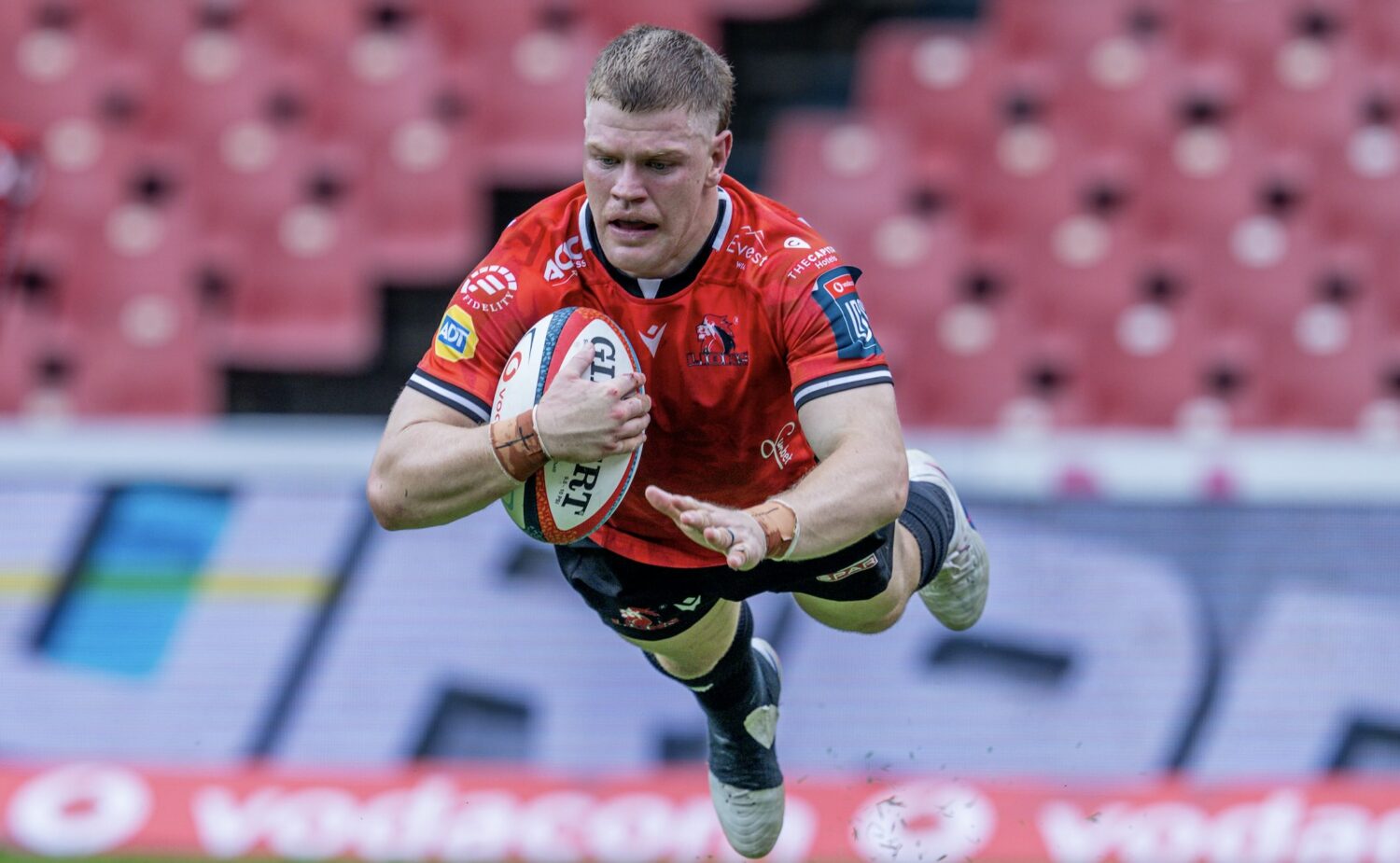
URC: The Lions, with Morne van den Berg massive, roared the loudest at Ellis Park with an emphatic win against the Sharks, for whom Jurenzo Julius was the best player.
Morne van den Berg was the pick of the Lions and the best player on display in the Lions bonus point win. The Springboks scrum half was at the heart of everything good about the Lions performance, in a Round 8 match that was played between Rounds 11 and 12 of the competition.
The win moves the Lions into seventh place in the URC and it also kept alive the SA Shield. Had the Sharks won, they would have claimed the Shield, given they already had three bonus-point wins in four matches against their South African colleagues.
The Sharks have beaten the Bulls and the Stormers twice and lost in the final play against the Lions in Durban a month ago.
But it is the Lions who now can claim the Shield if they beat the Stormers at Ellis Park next Saturday.
The Sharks will play the Bulls at Loftus in Pretoria next week and the Stormers and Bulls will complete the South African derbies within the URC in Pretoria on the 14th March.
The Lions coach Ivan van Rooyen picked his strongest match 23 and they were too powerful and precise for a Sharks match 23 missing seven of their first choice Springboks. Sharks coach JP Pietersen invested in youth and some hardened veterans, but the collective of the Sharks could not match the individual class of 21 year-old centre Jurenzo Julius, who ran with condition and with reward, scored a try, had one disallowed and always made metres in the tackle.
JULIUS IN BOKS MIDFIELD AUDITION
Veteran lock Jason Jenkins battled hard, but that was the lot for the visitors who are ninth in the URC league standings. They have four wins in 11 matches.
Van den Berg was the general at No 9, his halfback partner Chris Smith did not miss a kick at posts and the Lions midfield of Bronson Mills and Henco Van Wyk were convincing as a pairing.
Wingers Angelo Davids and Kelly Mpeku chased everything and turned every kick into an attacking one.
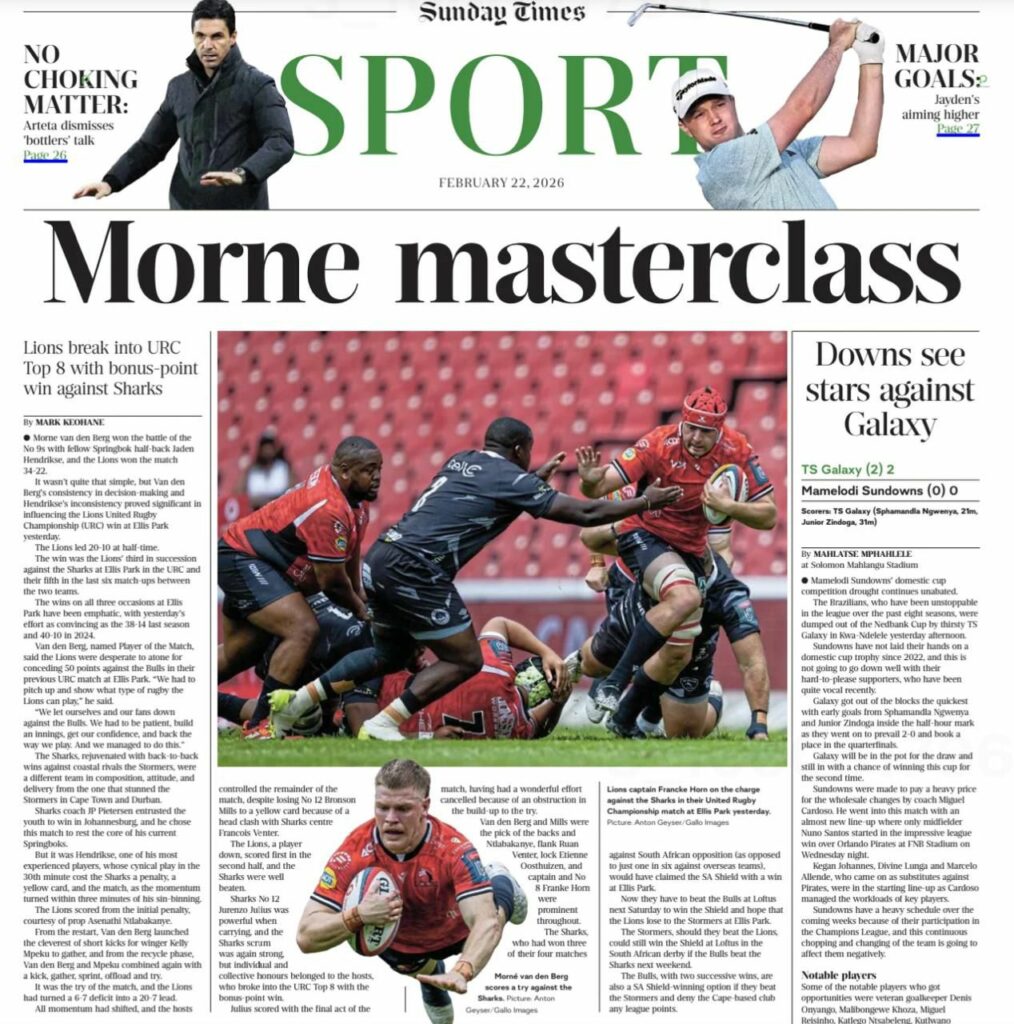
Lions fullback Quan Horn was confident and flanker Ruan Venter, lock Ettienne Oosthuizen were a menace and a presence. My personal favourite Asenathi Ntlabakanye produced trademark tackles, handled the tighthead side of the scrum effectively and was regular in taking the ball to the line.
Van den Berg was very good and the Lions were very good in responding from the 52-17 defeat a fortnight ago against the Bulls at Ellis Park.
The Lions have beaten the Sharks in the last three matches at Ellis Park in the URC, each time comfortably, and have won five of the last six matches against the Sharks.
UNITED RUGBY CHAMPIONSHIP LATEST – WATCH THE LIONS v SHARKS HIGHLIGHTS
International Rugby
Ireland find their identity & Scotland find a way to win away from home
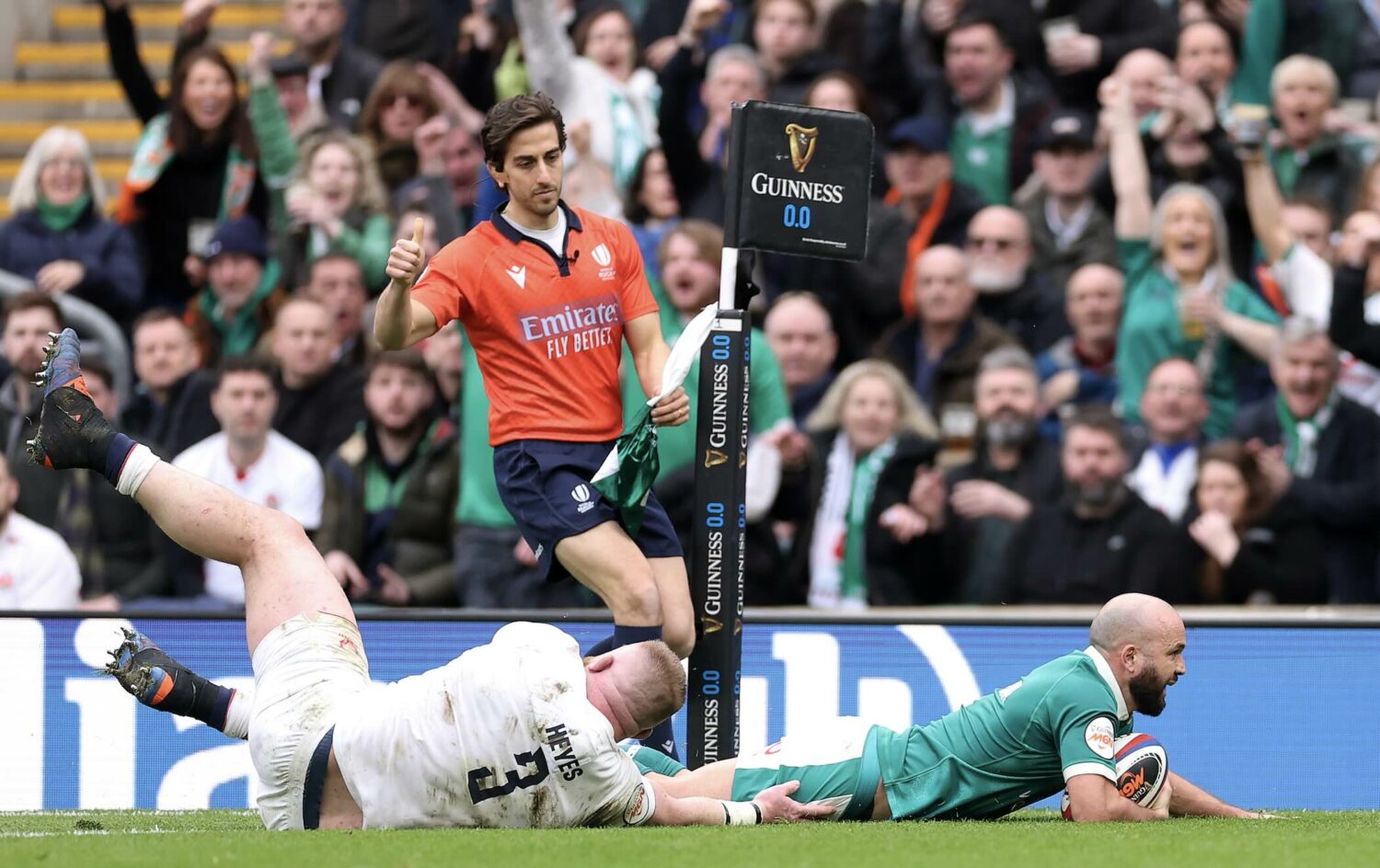
Ireland are celebrated for finding their identity in a record 42-21 win against England at the Allianz Stadium in Twickenham and Scotland are lauded for finding a way to win a Six Nations match away from home. Here’s your media summary.
What the English media led with
-
England’s recurring fast-start problem became the story again – an opening half-hour where Ireland went 22-0 up and effectively ended the contest.
-
The post-match tone is brutal: “humiliation”, “nightmare”, “questions everywhere” around England’s direction, selection calls, and a side that’s messy under pressure (turnovers, set-piece errors, poor exits).
-
Even where England “had entries”, the message is the same: they didn’t convert pressure into points, and Ireland did – clinically.
What the Irish media led with
-
A statement win built on speed, accuracy and edge – Ireland’s first-half blitz, then second-half control (Sheehan’s early score after the break = the hammer).
-
The Irish framing is “old guard / leaders / selection calls justified” – Crowley steering, Gibson-Park snapping, McCloskey giving them gainline ballast.
-
Farrell’s tone in reaction coverage: values + connection + belief (less “tactics board”, more “identity restored”).
Former players / influential voices (social + pundit loop)
-
Dan Sheehan (via ITV quote carried by SA Rugby Mag): framed it as hunger + belief + emotional lift after the France loss – and called it one of their best performances.
-
The wider pundit theme (echoed across liveblogs + post-match reaction): Ireland’s dominance wasn’t fluke finishing – it was system + tempo + accuracy, with England chasing shadows and confidence.
-
“I backed England” regret content is already circulating (ex-player prediction culture) with former England fullback Mike Brown getting stick in UK rugby-content spaces after calling it wrong. He is just one of many. Andy Goode called for a rethink of Steve Borthwick as head coach and challenged Borthwick for a rethink of his selections.
South African view (SA Rugby Mag)
Two clean angles SA Rugby Mag are pushing:
-
Mocke the notion that three weeks ago England were favourites to win the World Cup, according to their media, and now they have been destroyed, away to Scotland and at home to Ireland on successive weekends.
-
Player-reaction line: Sheehan’s “special” framing – Ireland tapped into travelling support and came out of the blocks.
What Six Nations official platform says …
The official match report leans hard into:
-
Frenetic start, Crowley penalty, then Gibson-Park’s quick-tap try as the tone-setter.
-
The decisive rhythm: England scratched (Dingwall / Lawrence / Underhill), but Ireland had answers (Sheehan + Osborne) and controlled the contest after going 22-0 up.
KEO’S VIEW
I had England to win 30-21 based on Ireland’s lack of form in November against the All Blacks and the Springboks, and their defeat against France in Paris, coupled with their escape at home against Italy a week ago. What I overestimated was the quality of the England team to respond to last weekend’s drubbing against Scotland at Murrayfield. I also thought England would lift for captain Maro Itoje’s 100th Test for England. I underestimated that Ireland would find their identity or play in a way that speaks to the identity that made them a top two side and momentarily had them ranked one in the world. The visitors were superb. This is the first time they have beaten England by more than 20 points. I thought they were as inspiring as England were inept.
EVERY PLAYER AND TEAM STAT AFTER ROUND 3 OF THE SIX NATIONS
WALES v SCOTLAND – Wales improved, Scotland escaped
Result: Wales 23 Scotland 26 (Turner try + Russell conversion in the 75th minute).
Scottish media tone (and Scotland lens generally)
-
The Scotland lens is “not pretty, but champion teams steal these” – resilience, finish, Russell influence, and bench impact (Turner delivering the match winner).
-
Scotland’s broader narrative: they’re alive in the championship picture (table pressure) because they can now win away, even when off their game.
Welsh media tone (and Wales lens generally)
-
The Wales lens is heartbreak with a sliver of hope: this was their best showing of the championship so far, but they still found a way to lose it late (errors, discipline, closing moments).
-
The hard number that will sit in every Welsh recap: 14 straight Six Nations losses (and counting).
Former players / influential voices (social + pundit loop)
-
The Guardian’s live coverage explicitly notes former Welsh captain Sam Warburton praising Wales’ belief/performance despite the late gut-punch.
South African view (SA Rugby Mag)
-
Scotland “snatch” it from a “passionate Wales” – which tells you the editorial emphasis is Wales’ emotional performance and Scotland’s late ruthlessness.
What Six Nations official platform says …
The official report makes it very usable for your structure:
-
Wales deserved the first-half lead: Carre + Adams tries, Costelow kicking, and a genuine edge in the arm-wrestle.
-
The swing: Scotland’s second-half surge, and Wales being denied their first win again a “remarkable comeback” headline win for Scotland.
KEO’S VIEW
The question is what hurts most for the hapless Welsh supporters; to concede 50 points each time at home or to be five minutes away from winning and then to lose by a late converted try after leading 20-5 early in the second half? Scotland showed composure in the final 10 minutes and Wales, so desperate and filled with desire, had nothing left in the tank once Scotland took the lead 26-23. For a neutral it was a bloody good Test, filled with every drama.
KEO News Wire
Ellis Park is a Springboks audition for Julius and Van Wyk
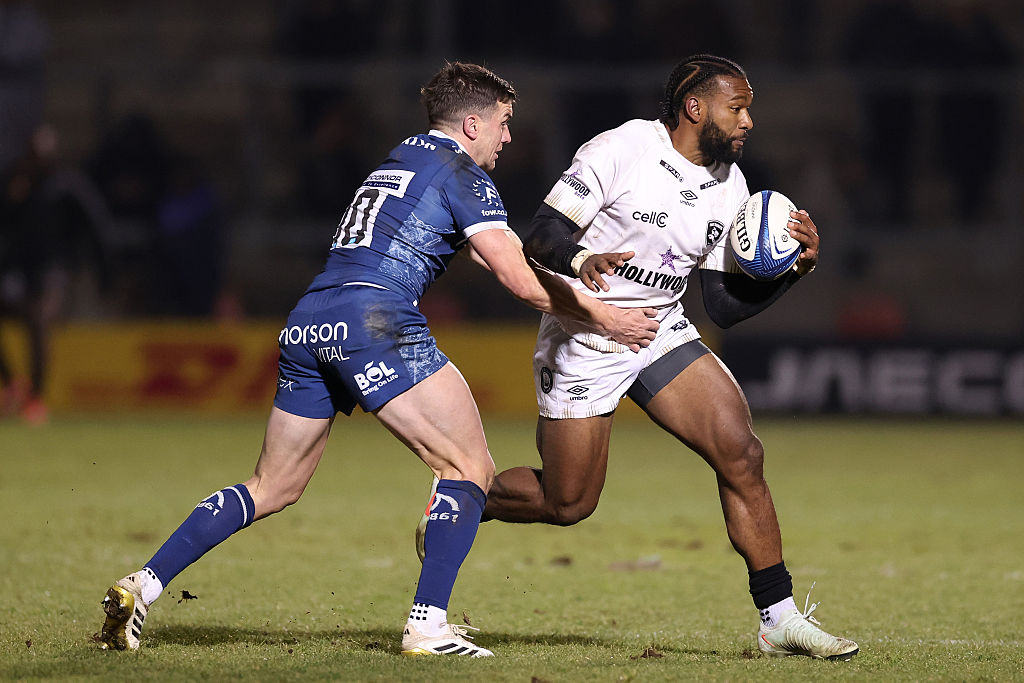
Jurenzo Julius and Henco van Wyk were colossal midfielders as schoolboys. Now they get the chance to make a statement to Springboks coach Rassie Erasmus that they should be on the national radar, if not for 2027, then definitely for the 2031 World Cup in the USA.
The Lions host the Sharks in the URC at Ellis Park on Saturday, and it is the performances of Julius, for the Sharks, and Van Wyk, for the Lions, that excites me the most in this match.
Julius, many forget, is still just 21 years-old. Equally is Van Wyk’s youthfulness at 24. The latter seems to have been around for a decade.
Both have carried the tag for best of in their class, with Van Wyk the Junior Springbok of the Year in 2021 and Julius the Junior Springbok of the Year in 2024.
Erasmus has never selected on sentiment and he has always been consistent that he differentiates between who is considered the best in a particular position and who is the best for his national squad.
He rates Julius and Van Wyk, having invited them to national alignment camps and picked Van Wyk for the senior SA XV that toured the north a few seasons ago.
Both players fit the mould of what Erasmus wants in a player. They have physical presence, skill and an engine.
Julius was so good when playing for Paul Roos in Stellenbosch, and equally imposing for SA under 18s and SA under 20s. Van Wyk, a few years before that, enjoyed as many accolades as the premier South African junior midfielder.
Van Wyk’s biggest challenge has not been that of selection at the Lions, but being consistently fit and available, whereas Julius walked into a Sharks set-up of Springbok midfielders in Lukhanyo Am, Francois Venter and current captain Andre Esterhuizen.
Ethan Hooker, who was used at centre and on the wing, played Test rugby for the Springboks in 2025 as a winger, but Sharks coach JP Pietersen has paired him with Esterhuizen in the past month. AM has left for Japan and Venter, alongside Julius on Saturday, has a greater mentoring role.
The beauty of Julius is that each time he has been given an opportunity, he has delivered. Van Wyk has shown the same pedigree when injury has not derailed his season.
Julius can play 12 and 13 and would not be out of place on the wing, and Van Wyk’s skillset makes him an option at 12 and 13.
SHARKS SCHOOL STORMERS IN THE URC
Van Wyk, at Monument High and with the Golden Lions Craven Week side, was exceptional at age group level. His transition into junior international rugby and senior rugby was as smooth, until injuries rocked him. From 2022 to 2024, injuries were more damaging than any opponent.
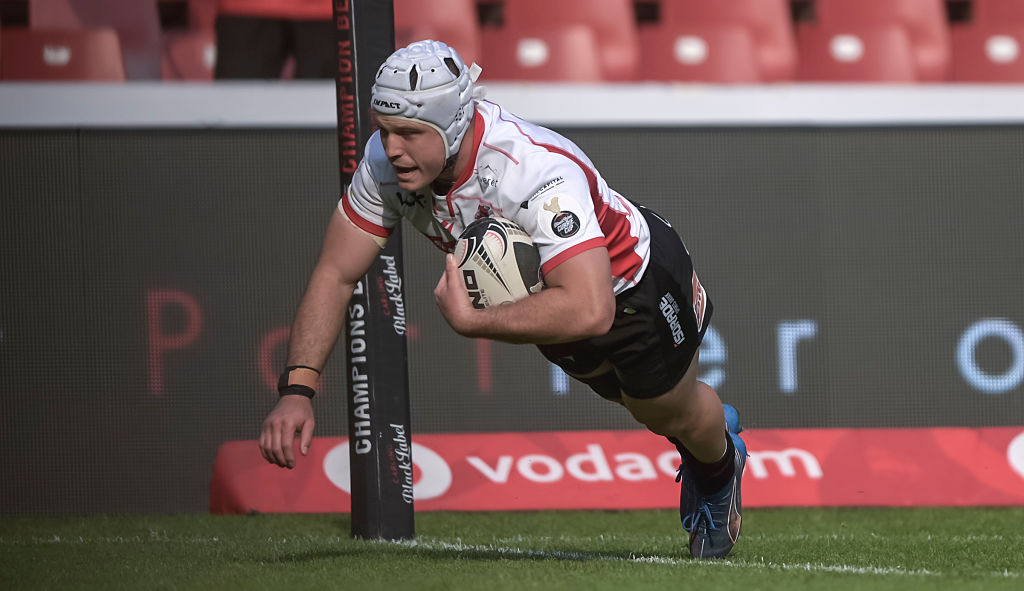
Photo: Christiaan Kotze/Gallo Images
What he is showing this season is the result of uninterrupted rugby. He is sharp, his confidence is obvious and he is the primary point of attack in a talented Lions backline.
South African rugby produces outstanding schoolboy midfielders every year, and the latest is Paarl Gim’s Markus Muller, who is part of the Stormers squad and is currently on national duty with the SA under 20s.
Julius and Van Wyk will be mindful of the hype around Muller and they will be keen to remind him and another 2025 schools graduate, Grey College and Free State’s Ethan Adams, that there is a senior midfield queue and that the class of 2019 and 2024 are on the rise.
View this post on Instagram
Recent head-to-head (URC meetings)
-
Jan 2026: Sharks 22–23 Lions (Durban)
-
Mar 2025: Sharks 14–38 Lions (Johannesburg)
-
Mar 2025: Sharks 22–25 Lions (Durban)
-
2024: Lions 40–10 Sharks (Johannesburg)
-
2024: Sharks 20–18 Lions (Durban)
Recent encounters show a clear home-field bias in Johannesburg, with the Lions winning comfortably there and edging the most recent contest in Durban.
LIONS v SHARKS: ALL THE TEAM NEWS
SATURDAY FEBRUARY 21
Lions v Hollywoodbets Sharks
Ellis Park, Johannesburg – KO 12.00 IRE & UK / 13.00 ITA / 14.00 SA
Referee: Griffin Colby (SARU, 12th league game)
AR 1: Aimee Barrett-Theron (SARU) AR 2: Zoe Naude (SARU)
TMO: Quinton Immelman (SARU)
Live on: SuperSport, Premier Sports, Flo Rugby & URC.tv
International Rugby
Round 3 of Six Nations: Everything you need to know
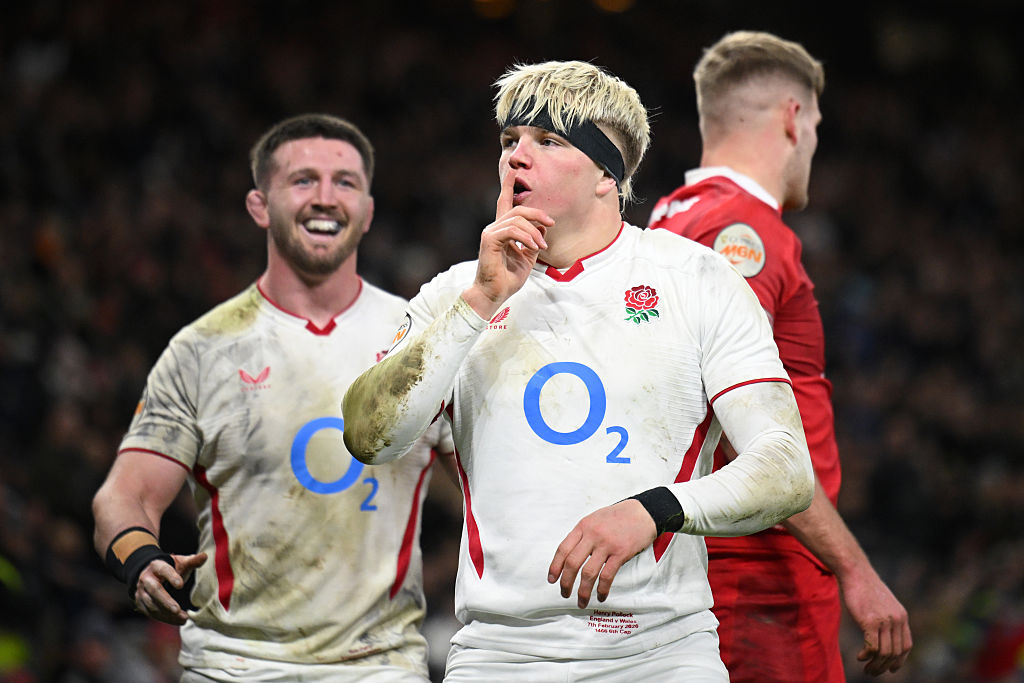
Teams, kick-off times, data, match-ups. Look no further. We have everything you need to know for Round 3 of the Six Nations as France plays Italy, Wales host Scotland and England take on Ireland.
The big talking point this weekend will be the flamboyant England loose-forward Henry Pollock’s first start at No 8.
AFRICA PICKS: WHERE TO MAKE YOUR SIX NATIONS MONEY THIS WEEKEND
WHO’S RUNNING THE HOTTEST IN SIX NATIONS
Six Nations Round 3: Pollock’s Call, Ireland’s Test, Scotland’s Edge, France’s Warning
The headline is at Allianz Stadium. Henry Pollock gets his first start at No 8 for England against Ireland. It is refreshing from England coach Steve Borthwick and it changes the shape of England’s loose trio. Pollock joins Tom Curry and Ben Earl in a back row built for tempo and confrontation.
ENGLAND v IRELAND
Kick-off: 18:00 (UK), Saturday 21 February
Venue: Allianz Stadium
England
Steward; Freeman, Lawrence, Dingwall, Arundell; Ford, Mitchell; Genge, Cowan-Dickie, Heyes, Itoje (capt), Chessum, T Curry, Earl, Pollock.
Replacements: George, Rodd, Davison, Coles, Pepper, Underhill, Van Poortvliet, M Smith.
Ireland
Osborne; Baloucoune, Ringrose, McCloskey, Lowe; Crowley, Gibson-Park; Loughman, Sheehan, Furlong, Ryan, McCarthy, Beirne, Van der Flier, Doris (capt).
Replacements: Kelleher, O’Toole, Bealham, Conan, Timoney, Casey, Frawley, O’Brien.
England’s 12-match winning run ended at Murrayfield, but at home they remain reliable. Their last defeat in London came in November 2024. Since then, nine straight wins. That matters.
Ireland, though, have owned this fixture recently. Five wins from the last six. The only loss in that stretch was a last-minute drop goal in this stadium two years ago.
Andy Farrell reshapes his spine. Jack Crowley starts at fly-half for control. Tadhg Furlong returns to strengthen the scrum. Beirne, Van der Flier and Gibson-Park are back. Ireland are leaning into experience because England at Twickenham demands it.
Recent results:
2025 (Dublin): Ireland 27–22 England
2024 (London): England 23–22 Ireland
2023 (Dublin): Ireland 29–16 England
View this post on Instagram
WALES v SCOTLAND
Kick-off: 16:40 (UK), Saturday 21 February
Venue: Principality Stadium
Wales
Rees-Zammit; Hamer-Webb, James, Hawkins, Adams; Costelow, T Williams; Carre, Lake (capt), Francis, Jenkins, Carter, Plumtree, Mann, Wainwright.
Replacements: Elias, Smith, Griffin, F Thomas, Botham, Hardy, J Evans, Murray.
Scotland
Kinghorn; Steyn, Jones, Tuipulotu (capt), Van der Merwe; Russell, White; McBeth, Cherry, Z Fagerson, Williamson, Cummings, Brown, Darge, M Fagerson.
Replacements: Cherry, Schoeman, Millar-Mills, Williamson, M Fagerson, Horne, Hastings, Graham.
Wales are 0-from-2 and hurting. Scotland arrive confident after reclaiming the Calcutta Cup against England. Momentum says Scotland, recent history in this clash and Wales’s woeful two wins in their last 25 Tests, says it has to be Scotland.
Welsh coach Steve Tandy has made changes. Sam Costelow takes over at 10. Taine Plumtree strengthens the back row and Ben Carter’s form earns him reward. Blair Murray offers bench spark. Scotland have recalled power winger Duhan van der Merwe and Toulouse fullback Blair Kinghorn.
Recent results:
2025 (Edinburgh): Scotland 35–29 Wales
2024 (Cardiff): Wales 26–27 Scotland
2023 (Edinburgh): Scotland 35–7 Wales
View this post on Instagram
FRANCE v ITALY
Kick-off: 15:10 (UK), Sunday 15 February
Venue: Stade Pierre Mauroy
Italy left Dublin believing they are good enough to beat the very best, but still vulnerable in the big clutch plays. They pushed Ireland and were frustrated not to get the job done. The problem now is scale. France have opened this championship with authority and pace.
Last year in Rome, France dismantled Italy, but the more relevant match is the 13-all draw in Lille in 2024. Paolo Garbisi hit the post from a penalty attempt with the last kick of the match. It would have been Italy’s first win against France in France.
Italy’s backline is ambitious and their pack is no longer passive, but France, in the 2025 Six Nations and in the opening fortnight of 2026, have set the standard.
Recent results:
2025 (Rome): Italy 24–73 France
2024 (Marseille): France 13–13 Italy
2023 (Rome): Italy 24–29 France
If you want a snapshot of the weekend’s matches, England have entrusted youth in the name of Pollock, Ireland have opted for experience and the old guard, Wales, well they continue to search for relevance, and Scotland want consistency. Italy have belief but they are up against the best team in the competition who are playing with the authority of a champion.
International Rugby
Who’s running the hottest in the Six Nations
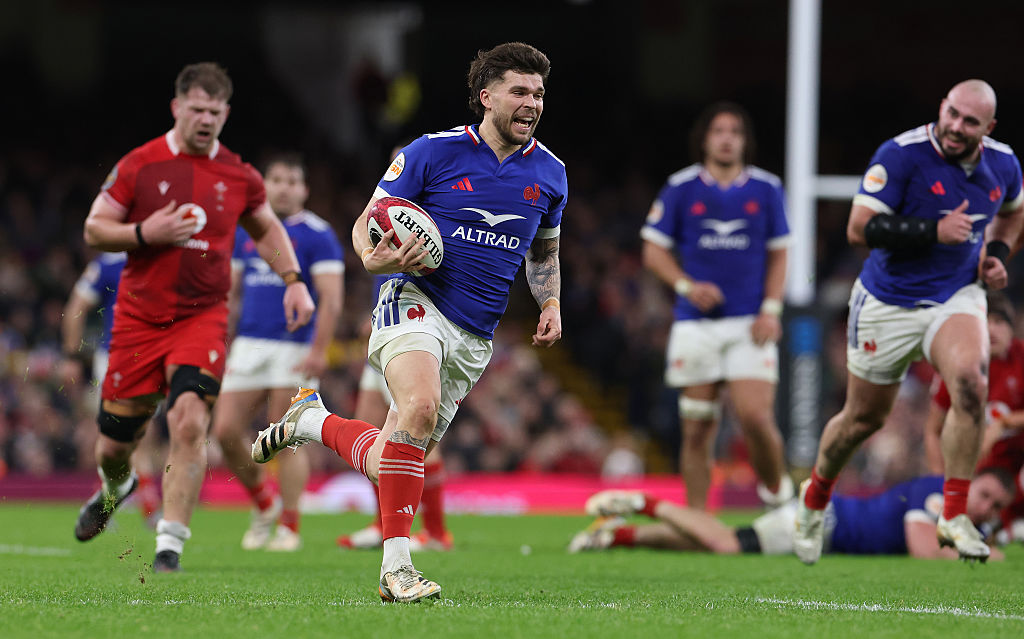
France have dominated the first fortnight of the Six Nations and they will continue the dream start to the 2026 tournament when hosting the improving Italy. Individually, the French players are also making the biggest statistical statements.
The French backs Louis Bielle-Biarrey, Theo Attissogbe and Matthee Jalibert are the most prominent in attack, with the two wingers three tries each second only to England winger Henry Arundell’s four.
No 10 Jalibert has scored two tries and made 32 carries, three more than his halfback partner Antoine Dupont, and four less than fullback Thomas Ramos’s 36. England’s No 8 Ben Earl has made the most carries (41).
Ramos, Bielle-Biarrey, Jalibert and Attissogbe are placed second to fifth in metres made, with Wales’s Louis Rees-Zammit topping the list with 238.
Jalibert, who was sensational for Bordeaux in the Investec Champions Cup Pool rounds, has been as good for France in the Six Nations.
No player has such a presence in so many facets of play.
Jalibert (10), Ramos (8) and Dupont (5) have made the most offloads, and Jalibert’s four try assists is the most.
Jalibert (10), along with Rees-Zammit, England’s Tommy Freeman and Scotland’s South African-born winger Kyle Steyn, has beaten the most defenders.
Jalibert (21) and Dupont (29) have combined for 50 kicks in play. England flyhalf George Ford leads the list with 34. Ford’s kick metres are the most, 1245, while Dupont (third with 827 metres) and Jalibert (sixth with 610 metres) total 1437 metres.
Jalibert (7) and Dupont (6), as a halfback duo, have no equal in the competition, combining for 13 kicks retained. Scotland’s Ben White, individually, is the leader with 10.
Jalibert (13) has bounced the most kicks, with Ford (11) in second place and Dupont third with 10.
Lineout steals have been minimal and Italy’s Manuel Zuliani and Michele Lamaro are the best with two each.
Defensively, Wales’s Aaron Wainwright (9) and Freeman (9) lead the dominant contact, with France’s Charles Ollivon and Earl (7) the next best.
Wainwright, with this dominance in contact, has the most post contact metres (55), followed by Freeman and Earl with 53 each.
The French attack has been on fire but defensively the French have been as good. Lenni Noguchi and Oscar Jegou, along with Italy’s Manuel Zuliani and Lorenzo Cannone and Steyn are grouped at the top with four each in the dominant tackle category.
(Lorenzo) Cannone, with 37, has the most successful tackles. Niccolo Cannone has 35 and Jegou 34.
Scotland’s Rory Darge (6) has won the most turnovers, with Zuliani second (5) and France’s Michael Guillard and Ireland’s Stuart McCloskey on four each. Winger Attissogbe has won three turnovers.
Wingers understandably dominate the attacking catch success with Ireland’s James Lowe, Arundell, Italy’s Louis Lynagh and Bielle-Biarrey all successful with two catches.
Ramos and Ford have scored the most points and they are the two most accurate sharpshooters, with Ramos tops with 85.7 percent and Ford striking at 81.8 percent.
EVERY PLAYER AND TEAM STAT FROM THE 2026 SIX NATIONS
International Rugby
France on fire as rugby’s media react to Six Nations
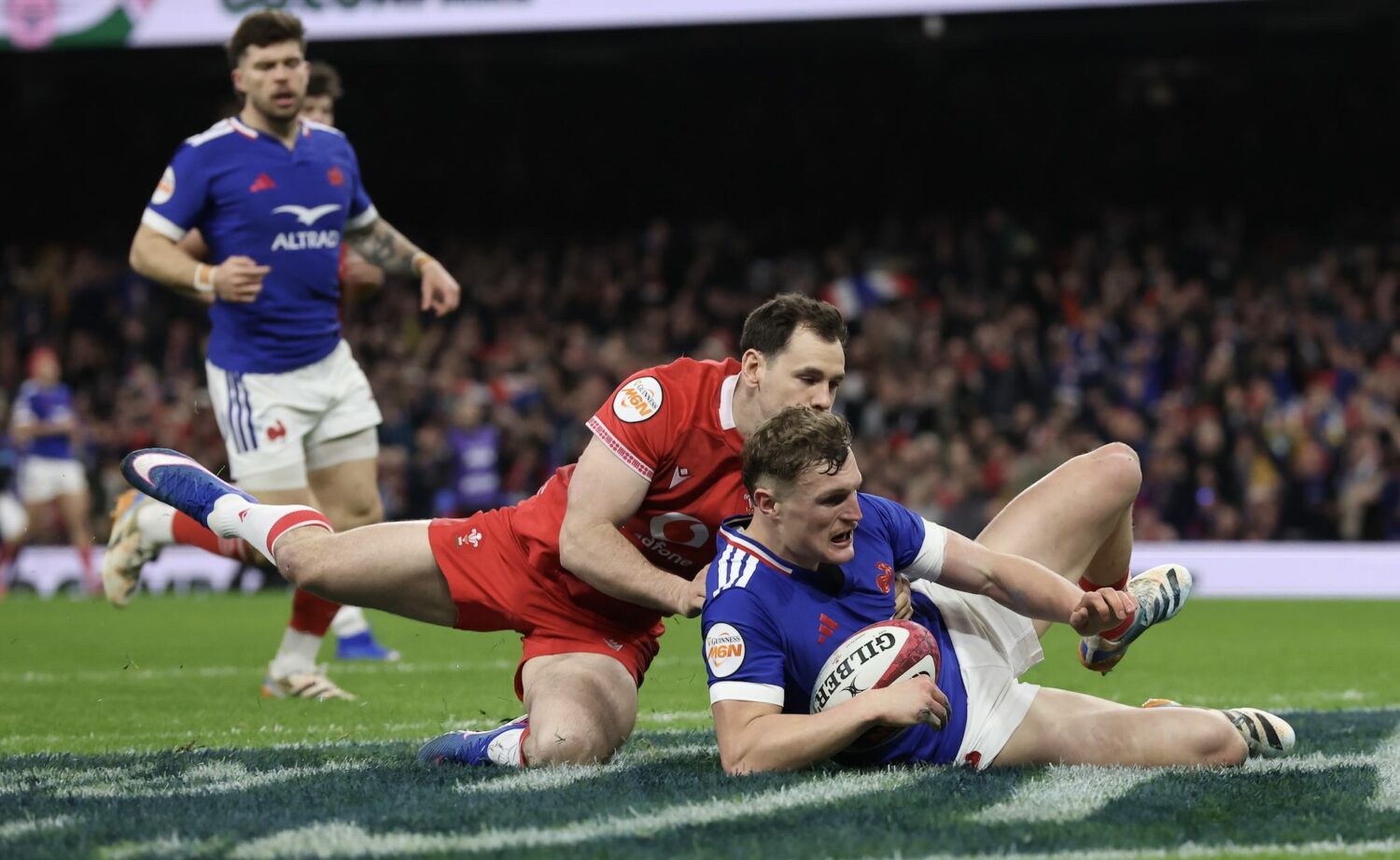
France are on fire, dispatching Wales with ease in Cardiff in Round 2 of the Six Nations. Scotland were the Brave and Ireland were the fortunate in Dublin. But on the evidence of two Rounds the world champions and No 1 ranked Springboks are still some way ahead of the chasing pack, which is more France than anyone else.
For those who don’t have time to scan every rugby site for Six Nations reaction, here is your summary, with the scanning brilliance of Chat and my own wrap and understanding of what unfolded.
AFRICA PICKS: DID YOU CASH IN ON YOUR SIX NATIONS BETS?
WALES v FRANCE (Cardiff) Reaction: “France are ruthless; Wales are broken”
Result context: France ran in 8 tries and hammered Wales 54–12 in Cardiff.
Six Nations official tone: “record-breaking” French performance; clinical, fast, and brutal.
The Northern Hemisphere themes (what the NH media agreed on)
1) France’s attack is now operating at “Grand Slam pace.”
The common thread: France didn’t just win – they stacked pressure, scored early, and never came down. Their execution looked title-ready, not “round-two ready.”
2) Jalibert ran the game; the French back three feasted.
Reuters singled out Matthieu Jalibert as “masterful”, with France’s shape and kicking hurting Wales repeatedly.
The Guardian focus: wings/finishers cashing in, with Théo Attissogbe front-and-centre.
3) Wales’ defensive system was the story and not in a good way.
Wales missed 31 tackles, with a 68% tackle success figure doing the rounds.
It also wasn’t lost on anyone that the crowd mood and attendance reflected a nation’s frustration.
-
Six Nations official: framed France as the tournament’s most clinical force; “run riot / record-breaking” framing.
-
Reuters: Jalibert masterclass; Wales defensive collapse; low attendance noted.
-
The Guardian: Attissogbe-led romp; France’s young backs looked fearless; Wales outclassed.
South African view (SA Rugby Mag / SA angle)
-
SA Rugby Mag (digital): blunt headline energy – “Rampant France rout woeful Wales” and the key SA takeaway: France are the only side still tracking a Grand Slam after two rounds.
-
Times Live: explicitly positioned this French run as a Springbok warning shot, tying it to SA’s own demolition job in Cardiff last November.
SCOTLAND v ENGLAND (Murrayfield) Reaction: “Scotland ambushed them; England had no Plan B”
Result context: Scotland beat England 31–20 and lifted the Calcutta Cup, ending England’s long winning run.
The Northern Hemisphere themes
1) Scotland’s start won it (and England never truly recovered).
Reuters captured it cleanly: Scotland sprinted into an early lead and played with belief; England spent the match chasing field position and control.
2) Finn Russell ran the show.
Across reports: Russell was the conductor control when needed, ambition when it was on.
3) Discipline (and Arundell) became England’s headline.
The red-card narrative dominated English-facing reaction, especially tabloid coverage.
4) “Plan A stalled” became the RugbyPass verdict.
RugbyPass pushed the familiar critique: England look blunt when their first pattern doesn’t land.
-
The Guardian: Scotland “stunned” England; big tries, big moments, and England’s errors/discipline issues.
-
Reuters: Scotland’s recent Calcutta Cup dominance underlined; Russell masterclass; Arundell card pivotal.
-
The Sun: framed it as Arundell “hero-to-zero”, Grand Slam hopes crushed on the Murrayfield hoodoo.
-
Sky Sports: breakdown angle on why England unravelled (discipline, start, game control).
South African view (SA Rugby Mag)
-
SA Rugby Mag: “Storming Scotland end England’s winning run” straightforward: England’s streak snapped; Scotland revived their campaign; Townsend milestone context.
-
SA Rugby Mag follow-up: quotes/angle pieces include Borthwick acknowledging England “gave them too big a start.”
IRELAND v ITALY (Dublin) Reaction: “Italy proved they belong; Ireland survived”
Result context: Ireland won 20–13, but the reaction was far more about Ireland’s wobble and Italy’s growth than Irish dominance.
The Northern Hemisphere themes
1) Ireland were “unconvincing” Italy dragged them into a scrap.
That “Ireland survived” framing is consistent across live reports and match wrap language.
2) Italy’s first-half performance made the story.
Italy led at the break; a maul try and defensive bite put Ireland under heat.
3) The Italian press angle: pride + frustration (and ‘it was there’).
Italian coverage leaned into: “great Italy for a half”, match flipped after the break, and the missed chance to land a historic result.
Outlet-by-outlet snapshot (Ireland + Italy)
-
Irish Times: Italy led 10–5 at half-time; Ireland turned it with second-half tries (Conan/Baloucoune) to regain control.
-
The Independent (UK): headline framing: “Unconvincing Ireland overcome half-time deficit” again, the win without the glow.
-
Gazzetta dello Sport (Italy): strong Italy for a half; Ireland “trembled” but won; the swing came after the break.
-
RAI News (Italy): second half “capsized” what looked like an Italian day; Italy started “azzurro” but Ireland flipped it.
-
Federazione Italiana Rugby (FIR): official Italian union tone: “grandissima Italia” that scared Ireland; positives to take even in defeat.
-
OnRugby (Italy): positioned it as the “almost” moment and a national conversation piece (reaction roundup).
FOR ALL THE LATEST PLAYER AND TEAM STATS FROM ROUND 2 OF THE SIX NATIONS
-
2026 Six Nations fixtures:
https://www.keo.co.za/2026-six-nations-fixtures-confirmed-france-to-open-blockbuster-campaign-on-a-thursday/ -
France v Ireland analysis:
https://www.keo.co.za/how-transformed-france-tortured-inept-ireland-in-paris/ -
Previous British media reaction piece:
https://www.keo.co.za/england-hammer-wales-as-british-media-deliver-brutal-six-nations-verdict/
International Rugby
Super Rugby Pacific: South African rugby is bigger without you
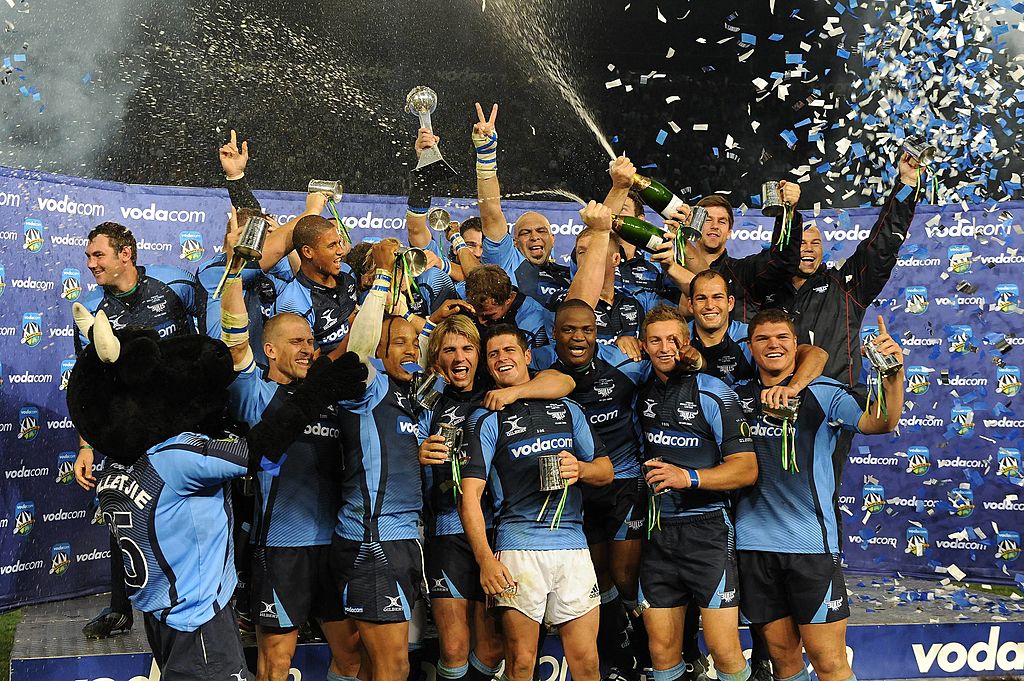
A message to Super Rugby Pacific. South Africa doesn’t want back into your competition. Not now. Not ever.
Super Rugby Pacific CEO Jack Mesley, speaking to Martin Devlin on DSPN, dismissed the idea of South African teams ever returning.
Pressed directly, he said:
“No.”
Asked why he would not welcome South Africa back into the competition, Mesley replied:
“If you go back and look at the data, those games did not rate well. They did not attend well. They did not rate like we’re rating now. They did not attend like we are attending now.”
He added:
“I think there is a romance associated with the South African days.”
Devlin joked:
“It always is about the girlfriend who leaves, mate.”
Mesley laughed and concluded:
“Even a South African one.”
Romance?
Let’s deal in reality.
The Springboks have thrived post Super Rugby’s exit.
Since South Africa shifted north post-Covid and into the United Rugby Championship and Investec Champions Cup, the Springboks have become the dominant force in world rugby.
- Two Rugby World Cups in 2019 and 2023.
- Back-to-back Rugby Championship titles in 2024 and 2025.
- Five wins in their last six Tests against the All Blacks.
- A record 43-10 demolition in Wellington.
- A 35-7 humiliation at Twickenham.
This is more a measurable dominance than it is a sentimental nostalgia.
South African clubs now play in a weekly high-intensity cross-hemisphere competition against Ireland’s provinces, French heavyweights and English power clubs. They play against Welsh, Scottish and Italian teams. The URC and Champions Cup demand travel, adaptability, and confrontation with contrasting styles.
It has hardened South African players tactically and physically.
They are preparing for Test rugby and World Cups. This is not the exhibition of Bledisloe or the basketball of Super Rugby Pacific.
The All Blacks have regressed since South Africa left Super Rugby
New Zealand’s post-Covid Test record tells a different story.
For the first time in the professional era, the All Blacks have looked physically vulnerable. They have been bullied at the collision and they have lost multiple home Tests. They have been beaten consistently by the Springboks.
The annual three-week Super Rugby tours to South Africa once conditioned New Zealand franchises for brutality. Playing the Bulls at Loftus, the Stormers in Cape Town, the Sharks in Durban, and making trips to Bloemfontein and Ellis Park were a weekend physical audit.
That audit no longer exists.
Super Rugby Pacific is now largely an internal New Zealand competition with Australian and Pacific participation. The physical edge that South African teams brought has disappeared.
Eddie Jones, speaking to Devlin, bluntly addressed the decline.
“That’s the other thing that’s changed for New Zealand Rugby; Super Rugby was the greatest influence on world rugby for a long period of time. Whatever happened in Super Rugby basically set the trend for the game.”
He continued:
“Unfortunately, Super Rugby has dropped in terms of status. We all know South Africa has left, and now it’s a competition that doesn’t have as much influence around the world.”
What Jones is articulating is the structural erosion of the competition. Super Rugby, in its original Super 12 guise, had no equal in world rugby’s club environment. Super Rugby Pacific is now an afterthought to competitions like the Investec Champions Cup, the URC, the English Prem and France’s Top 14.
Super Rugby Pacific produces strong local derbies and healthy domestic numbers, but globally, its relevance has shrunk.
The winner is almost invariably a New Zealand side, the style is about attack and little regard for the nuances of Test rugby, especially World Cup rugby, and the buzz word is entertainment, ball in play and no respect for the pressure moments that define World Cup titles.
Test rugby is not exhibition rugby.
When confronted by the Springboks’ power game or France and England’s pack-driven precision, the All Blacks have looked less conditioned for the grind.
South Africa, meanwhile, are conditioned weekly in Europe and then sharpened further in the Rugby Championship.
The Arrogance
New Zealand Rugby previously dismissed South Africa’s contribution to Super Rugby. The outgoing CEO Mark Robinson made clear that the competition would move on without South Africa before even formally informing SA Rugby leadership.
Robinson, an average All Black, has been even more mediocre as NZ Rugby CEO. His reward for cocking it up was to get a job from his Aussie mate (World Rugby Chair) and namesake Brett Robinson, as the Chief of Rugby.
Chief of Rugby? What the Chair means is a portfolio created before appointing Robinson as the CEO of World Rugby.
It is messy, but not as messy as the illusion that Super Rugby Pacific has a global appeal.
SUPER RUGBY PACIFIC CEO MESLEY MOCKS SA RUGBY
Mesley speaks of romance and laughs at the idea of a South African return. Look, he is an Aussie, so that explains a few things.
But to believe he knows rugby is a stretch, despite the purple prose on his appointment.
Super Rugby Pacific Chair Kevin Malloy said Mesley’s strong marketing background and practical skillset made him ideally suited to the Super Rugby Pacific CEO role.
“What set Jack apart from a strong pool of candidates following a thorough search was his passion for rugby, his enthusiasm and a breadth of experience in both marketing and sports,” Malloy said.
OK, if you want to believe that Kev!
These are strange times in New Zealand rugby.
An ex-All Black in Robinson rejuvenated the Springboks in kicking South Africa out of Super Rugby and an Aussie marketer has added to New Zealand’s misery with his promotion of an insular Pacific competition.
The irony in the Republic is that South Africa still respects New Zealand. It is the Test South Africans always want to experience.
The Greatest Rivalry Tour later this year is sold out, within hours of tickets going on sale.
The All Blacks remain rugby’s most recognisable brand in South Africa, and there is no smugness in the Republic when South African rugby people speak of NZ Rugby or the All Blacks. There is only respect and a varying degree of adulation.
Mesley speaks with a smirk about South African romance in Super Rugby, but the South African game has grown stronger on every front since moving north and New Zealand rugby has grown smaller without South Africa.
There is a word in South Africa for dismissive arrogance dressed up as data. There is a word for Mesley.
It starts with a P … and it isn’t Pacific.
International Rugby
England hammer Wales as British media deliver brutal Six Nations verdict
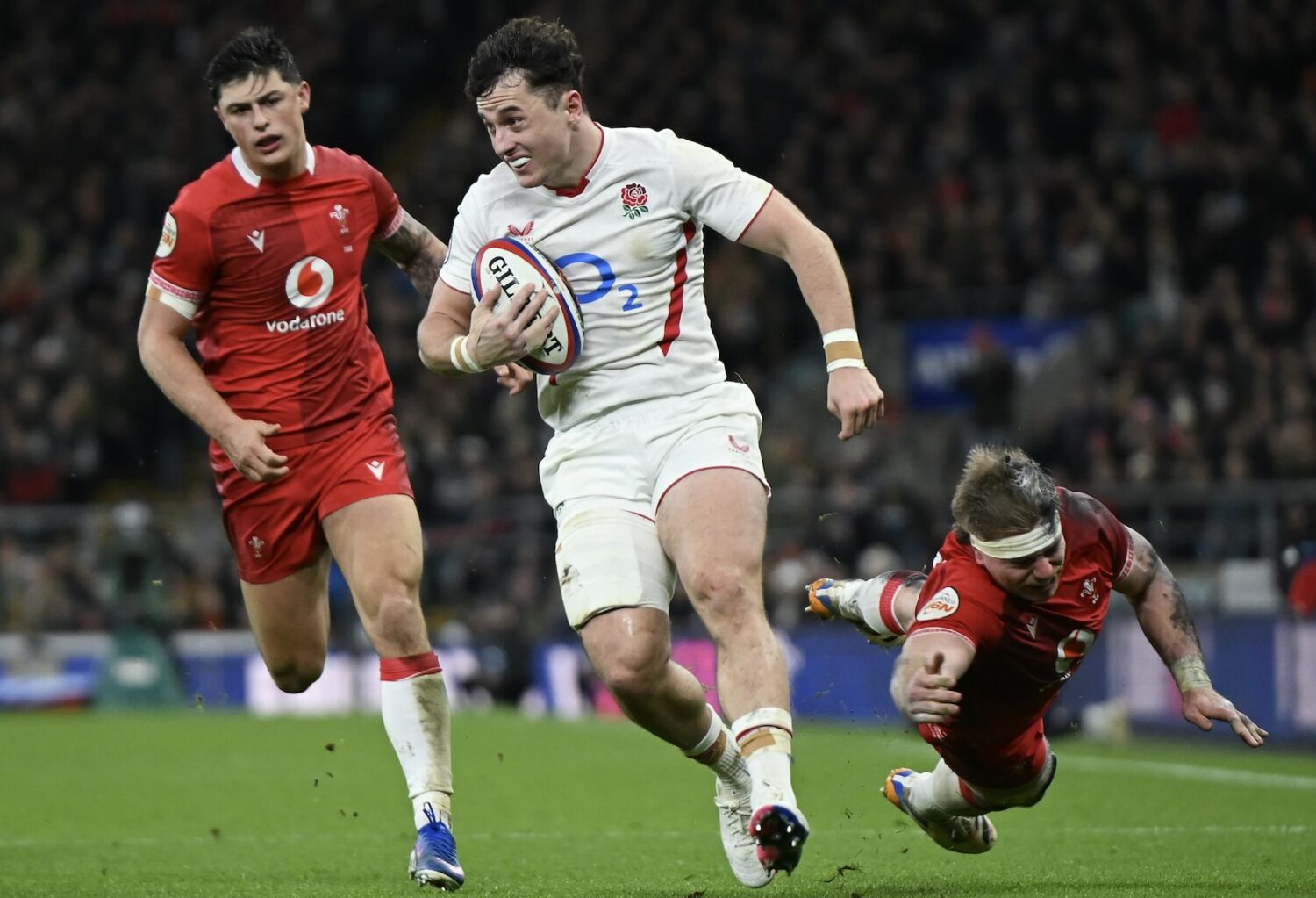
England didn’t just hammer Wales 48-7 at the Allianz Stadium in Twickenham; they reminded the visitors that they will only be good for the wooden spoon in the 2026 Six Nations.
The contest was over before kick-off but confirmed as officially over before the 20th minute when Wales trailed 10-0 and were reduced to 13 players. That score doubled to 22-0 before the 30th minute and it could have been even more damning but for England’s inaccuracy and many poor decisions when playing 15 versus 13.
The British media were ruthless in their assessment of England’s demolition of the Welsh, with the flameless Dragons offering no resistance. Their discipline collapsed, belief vanished, and England didn’t need to be spectacular to be savage.
Henry Arundell scored a hat-trick and No 10 George Ford was voted Player of the Match. Wales’ catastrophic discipline, turned a historic rivalry into a one-sided examination.
Across the UK press, the only argument was about how deep Wales’ problems run.
Planet Rugby
Planet Rugby framed the match as an England statement, focusing on clarity of attack and ruthless punishment of Welsh indiscipline. Their assessment was that England didn’t chase miracles – they simply played what was in front of them and dismantled a side repeatedly reduced by yellow cards.
🔗 https://www.planetrugby.com
RugbyPass
RugbyPass led with England “running riot”, highlighting Arundell’s finishing and Ford’s authority at No 10. The tone was decisive: Wales lost control early and never recovered, leaving England to dictate tempo, territory and scoreboard.
🔗 https://www.rugbypass.com/news/england-stars-run-riot-as-wales-dismantled-in-six-nations-opener/
BBC Sport
BBC Sport focused on England’s composure, stressing how quickly the contest slipped away once Wales started collecting yellow cards. England were praised for discipline and patience – doing nothing spectacular, but everything right.
🔗 https://www.bbc.com/sport/rugby-union
The Guardian
The Guardian called it a resounding win, pointing out England left points on the field while Wales self-destructed. Their report linked the performance to wider Welsh instability, suggesting the problems extend well beyond 80 minutes.
🔗 https://www.theguardian.com/sport/2026/feb/07/england-wales-six-nations-match-report
Rugby365
Rugby365’s reaction was blunt and familiar: ill-discipline killed Wales, England simply obliged. The outcome was decided early, repeated penalties and cards ensuring no route back.
🔗 https://rugby365.com
SA Rugby Magazine
SA Rugby Mag viewed the result through a global lens – England rising, Wales regressing. Less about the score, more about trajectory, with England building momentum in winning for a 12th successive match, and Wales stuck in survival mode.
🔗 https://www.sarugbymag.co.za
Welsh response
Welsh media reaction were more sombre than angry. Discipline, fragility and a lack of physical authority were recurring themes. The concern is no longer about losing to England; it’s about how easily Wales are folding under pressure.
*Italy beat Scotland 18-15 in Saturday’s early game.
HOW THE MEDIA RATED FRANCE BEATING IRELAND 36-14
ALL THE PLAYER AND TEAM STATS FROM ROUND 1 MATCH CENTRE OF THE 2026 SIX NATIONS
International Rugby
How transformed France tortured inept Ireland in Paris
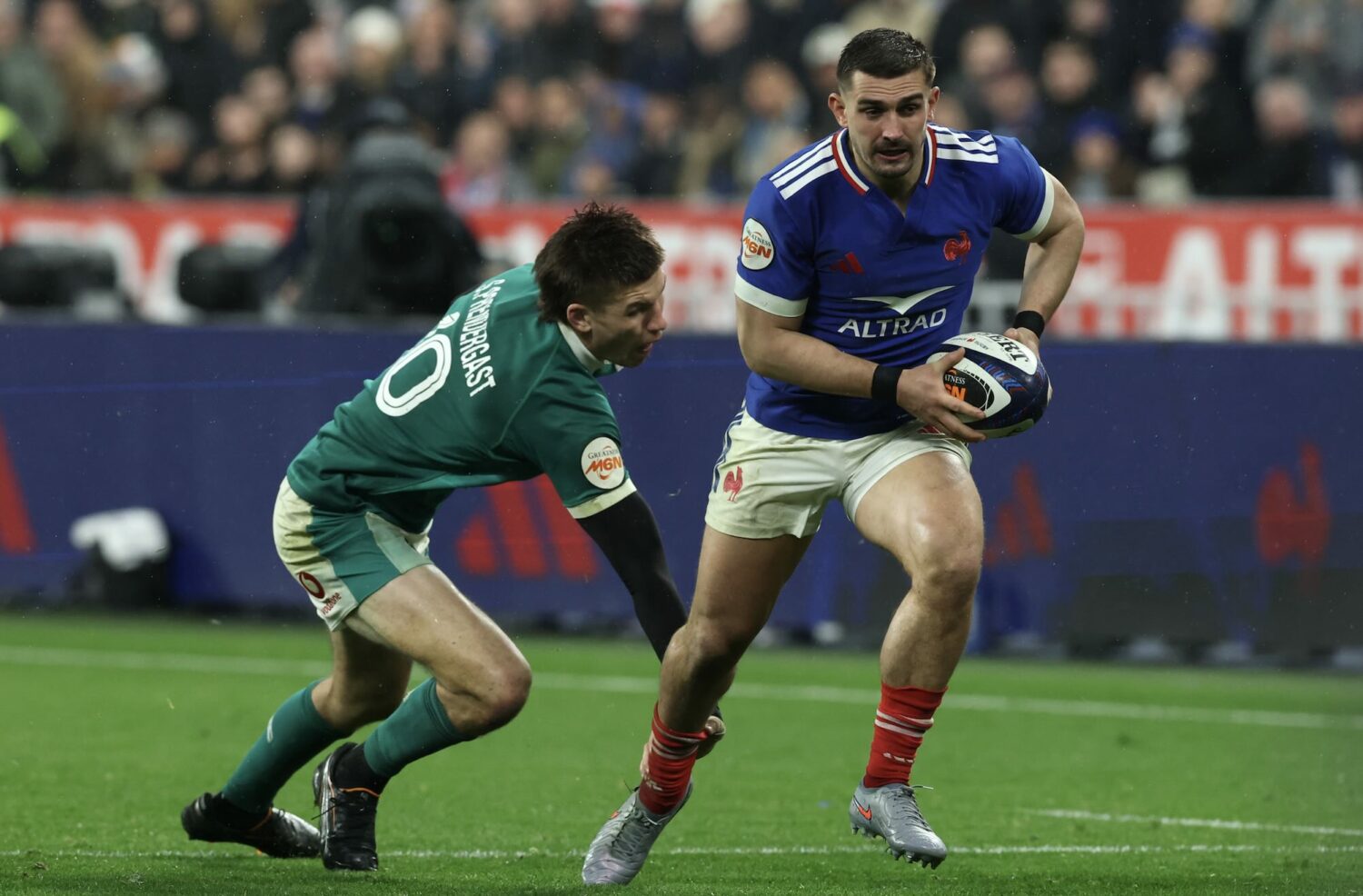
France changed players, approach and tactics to torture Ireland 36-14 in Paris in the Six Nations. We look at the difference between 2026 win and the 2025 win by France against Ireland in Dublin.
Ireland 27 France 42
Six Nations 2026 – Paris
France 36 Ireland 14
Here’s what France did differently.
1) 2026: France dominated the match. 2025: France stole it with efficiency.
Dublin 2025: Ireland had 58% possession and 53% territory, and France still won by 15. France were happy to defend for long stretches (they made 187 tackles) and then punish Ireland when the game fractured.
Paris 2026: France flipped that script. They had 55% possession and 59% territory and played the game mostly in Ireland’s half. That’s not “clinical counterpunching”. That’s control.
The tell: France ran for 588 metres in 2026 vs Ireland’s 385. In 2025 it was basically even (474 vs 477). France went from “equal metres, better strike-rate” to “more ball, more territory, more metres, more everything.”
2) 2026: France carved Ireland open. 2025: France finished better than Ireland.
Clean breaks
-
2025: France 7 clean breaks, Ireland 5 (tight margin).
-
2026: France 19 clean breaks, Ireland 5 (a gulf).
That’s the difference between a game you win and a team you hurt.
3) 2026: France’s pressure forced Irish errors at scale.
Ireland’s “handling under heat” fell apart in Paris:
-
2026 turnover knock-ons: Ireland 11, France 6
-
2025 turnover knock-ons: Ireland 7, France 3
France didn’t just wait for mistakes in 2026. They manufactured them with territory, line-speed, and contestable moments.
4) 2026: Ireland couldn’t tackle France. In 2025 they couldn’t stop France finishing.
-
2025 missed tackles: Ireland 23 (France 16)
-
2026 missed tackles: Ireland 42 (France 21)
That’s not “a few soft shoulders”. That’s structural stress: repeated breaks, repeated reloads, repeated one-on-ones lost.
5) 2026: France won the first hour. 2025: France won the key moments (and the second-half surge).
In Paris, Ireland were 29–0 down before they got going. France had already cashed the bonus point and then eased.
In Dublin, France’s big statement was the second-half blitz, after losing Antoine Dupont early (he went off around the half-hour and later it was confirmed as a cruciate injury).
So:
-
2025: a win built on resilience + clinical finishing after disruption.
-
2026: a win built on front-foot brutality + sustained dominance.
6) The halfback axis changed – and so did the type of threat.
In 2026, with Ntamack out, Jalibert started and had a direct hand in multiple tries, while Dupont called their connection “very positive.”
That matters tactically: Jalibert tends to play flatter and more visibly, and France’s attack in 2026 looked like a team choosing to rip you open in-phase, not just punish you when you overplay.
The simplest summary
Dublin 2025: France were ruthless in chaos – even while defending for long spells.
Paris 2026: France were ruthless in control – more territory, more breaks, more metres, and Ireland cracked.
This is where the regression is most obvious – and most damaging.
1) Physical dominance at the contact point
Ireland’s biggest slide is brutally simple: they are no longer winning collisions consistently.
Against France in Paris, Ireland were regularly knocked backwards in contact, which killed their ability to play fast, accurate phase rugby. Once that happens, everything else collapses – tempo, shape, decision-making.
A season earlier in Dublin, Ireland could still absorb France’s power and recycle quickly. In 2026, France dictated the gainline on both sides of the ball and Ireland were playing from behind bodies instead of on top of them.
This is the clearest regression because Ireland’s entire system is built on fast ruck ball. Take that away and the system has no oxygen.
2) Defensive resilience under sustained pressure
Ireland used to bend without breaking. They now bend, fracture, and then leak tries.
The missed-tackle spike in Paris wasn’t about effort – it was about:
-
repeated reloads
-
fatigued edge defenders
-
centres and back-three players making late, reactive reads
In Dublin 2025, Ireland could survive France’s big moments and reset. In Paris 2026, once France scored early, Ireland never regained defensive authority. The scoreline at halftime wasn’t a fluke it was the logical outcome of structural stress.
3) Attacking clarity without Johnny Sexton
This is not about nostalgia – it’s about control.
Ireland have regressed in:
-
in-game management
-
territory selection
-
when to slow down a match
In Paris, Ireland chased the game far too early, forcing passes under pressure instead of building pressure. Sexton’s absence isn’t about individual brilliance – it’s about knowing when not to play.
Ireland still have quality decision-makers, but they don’t yet have a single, dominant conductor who can steady the ship when momentum is gone.
4) Backline punch against elite defences
Ireland’s backs no longer frighten top-tier defences the way they did in 2022–2024.
Against France:
-
line breaks were rare
-
defenders were not fixed
-
edge space was never clean
France could defend honestly and aggressively, without having to overfold or gamble. That is a massive red flag.
A year ago, Ireland could create indecision. In Paris, France defended with certainty.
5) Psychological authority
This is subtle – but it matters.
Ireland used to walk onto the field believing they could impose themselves on anyone. In Paris, once France landed early blows, Ireland looked like a team hoping the storm would pass rather than one capable of changing the weather.
The best Ireland sides of recent years could absorb momentum swings and reassert control. This version struggled to do either.
The uncomfortable truth
Ireland haven’t fallen off a cliff – but they have slipped off a plateau.
They are no longer physically dominant, tactically inevitable, or psychologically imposing against the very best.
FRANCE 36 IRELAND 14: EVERY PLAYER AND TEAM STAT
AFRICA PICKS: YOUR BEST MONEY-MAKING SIX NATIONS BETS
*CHAT supported
International Rugby
Fiery French applauded as alarm bells ring for Ireland
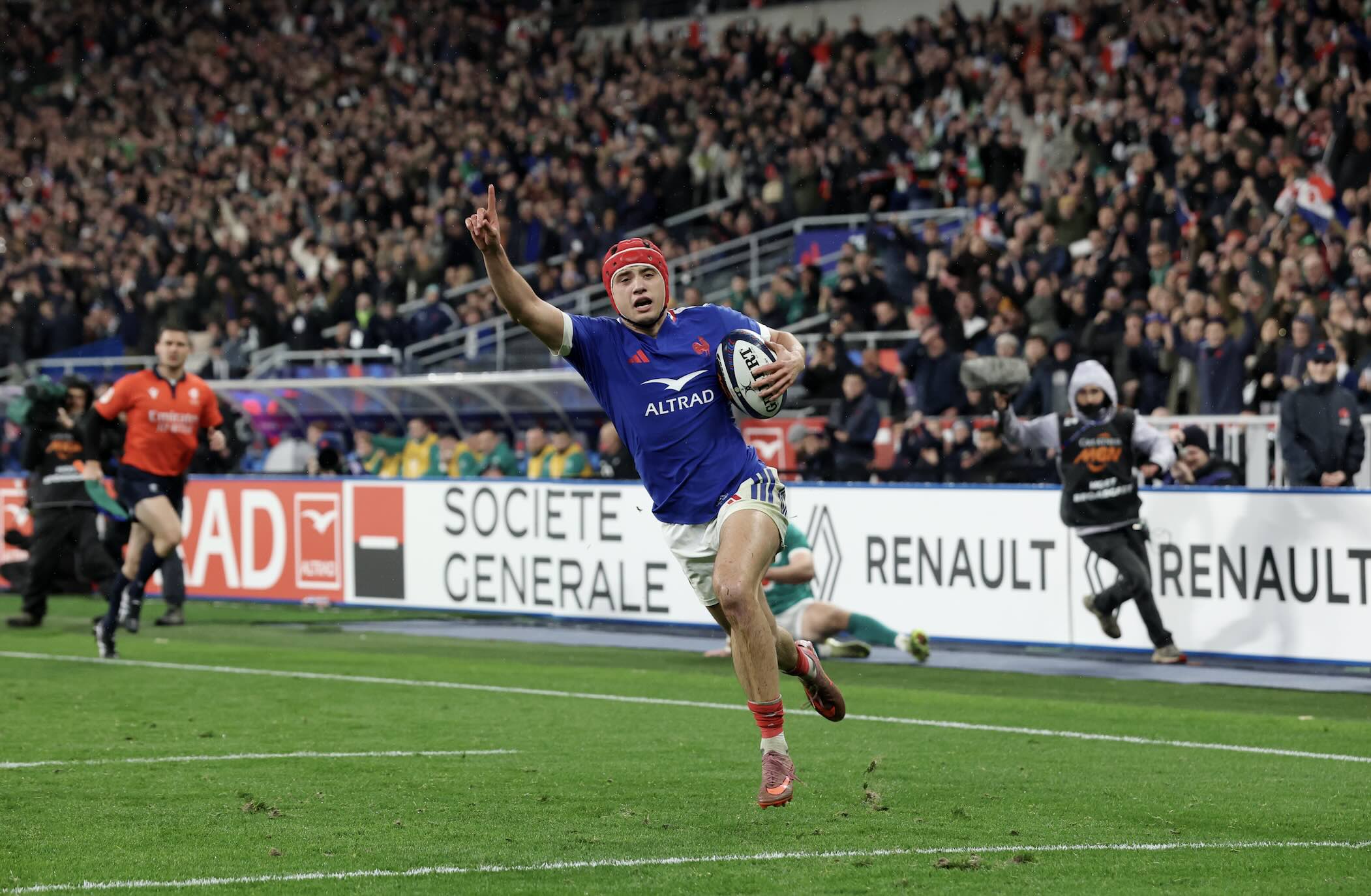
Conviction in the performance, but caution in the storytelling summarised the French media reaction to their brutal 36-14 Six Nations win against Ireland Paris. For the Irish, it was a case of alarm bells ringing.
France had destroyed the Irish in Dublin 42-27 a season ago having led 42-15 with 10 minutes to play. Two late tries added some comfort for Irish supporters. Then came the defeat to the All Blacks in Chicago and the humiliation against the Springboks in Dublin.
Paris was equally damning for Ireland as they were steamrolled.
France led 22 nil at half time and 29 nil after 57 minutes.
Two Irish tries between the 60th and 65th minutes offered more caution to France than hope to Ireland and the hosts finished the final five minutes attacking the Irish try line before crossing for their fifth try.
France are the bookies’ favourites to defend the Six Nations title won last season.
I asked my mate at ChatGPT to do a round up of how the Irish and French Rugby Media reacted to the match.
The Irish Times
Tone: bruised realism.
Summary: framed it as a throwback “Parisian beating” and a reminder of “bad old days” patterns, with Ireland blown away early and left trying to salvage dignity late.
Irish Independent
Tone: alarm bells, big-picture worry.
Summary: leaned into “new reality” language: Ireland didn’t lose a classic, they lost a mismatch, and the margin could have been uglier without the late rally.
Irish Examiner
Tone: sharp critique of Ireland, plus the French pace-setter angle.
Summary: sold it as France starting and finishing with a flourish while Ireland were “abject” for too long; a fast French start “filleted” Ireland before the game ever became a contest.
The Times
Tone: statement win, title warning shot.
Summary: framed it as France sending a message to the championship, with the emphasis on the bonus-point dominance, the early avalanche to 29–0, and Ireland being outmuscled and out-thought until the contest was gone.
L’Équipe (“Le Quippe”)
Tone: controlled praise with a small caution.
Summary: credited a brilliant, accurate French first-half and “seductive” spell, then noted France were less sovereign after the break when they conceded two tries that slightly stained the overall polish.
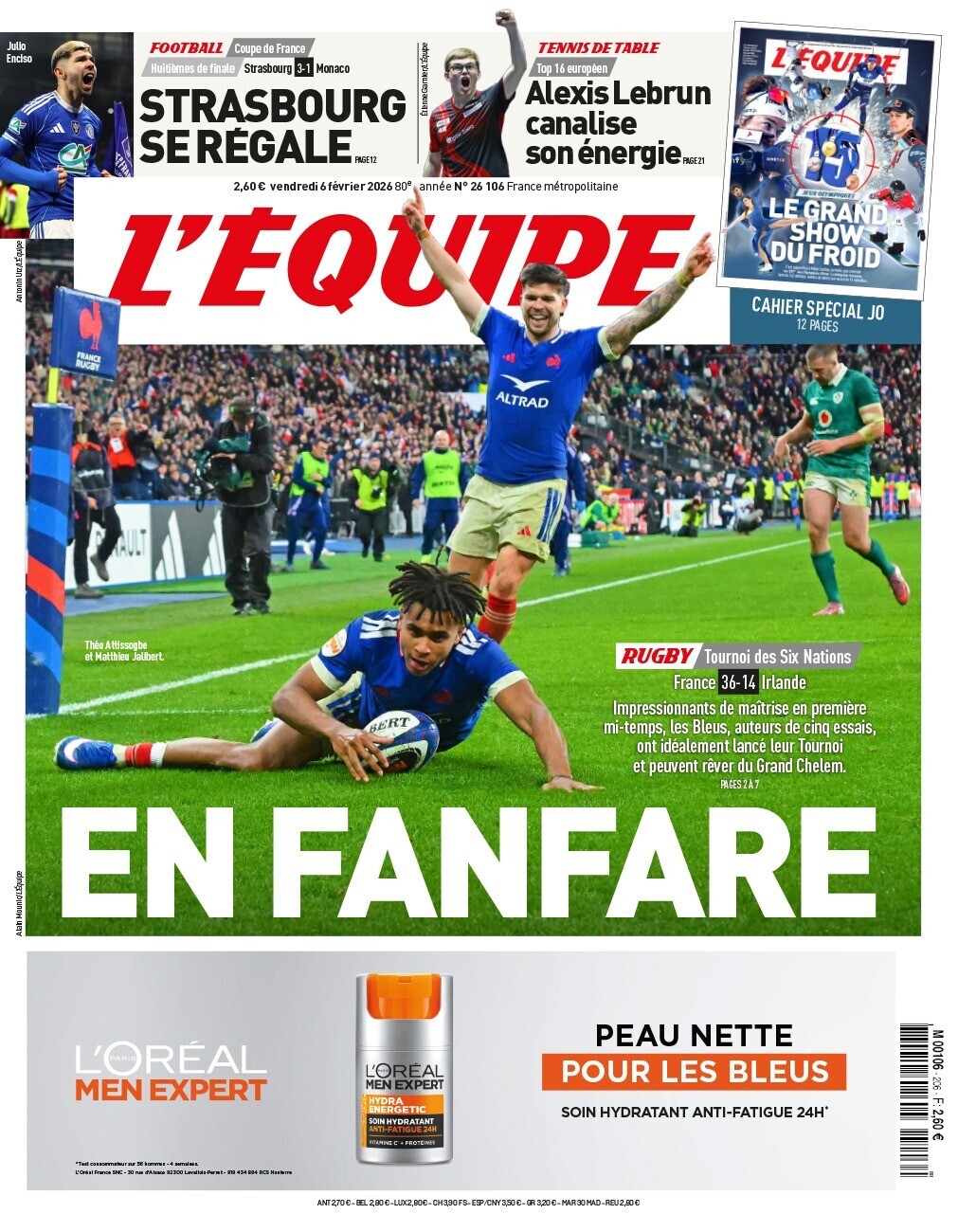
Rugbyrama
Tone: France’s tempo and discipline as the headline.
Summary: stressed how France’s pace exhausted Ireland, how clean the first-half was (discipline/accuracy), then pointed out Ireland only found daylight when France dropped intensity after building the lead.
SA Rugby Magazine
Tone: acknowledgement of quality and statement intent.
SA RugbyMag’s headlines framed the result as France making a statement in their Six Nations title defence, highlighting coach Fabien Galthié’s praise of France’s attacking display in Paris. The emphasis was on the dominance and intent shown by the defending champions rather than harsh analysis of Ireland’s shortcomings.
Rugby365
Tone: bold and definitive.
Rugby365 was unequivocal: France “made a statement” in this opener, labelling the performance a demolition job on one of the Six Nations’ traditional heavyweights. Their report leaned into the idea that France weren’t just winning they were announcing their intentions for the tournament from the first whistle.
Planet Rugby (South African audience perspective)
Tone: tactical and analytical.
Planet Rugby’s reaction, widely read by South African fans, focused on key takeaways from the match: France’s first-half masterclass, sharp player ratings (with Sam Prendergast singled out as struggling for Ireland), and how the French backs and playmakers ran the Irish defence ragged. They combined phrase-by-phrase insights with ratings and analytic angles rather than pure storytelling.
Overall SA reaction themes
South African rugby media weren’t interested in gentle language and they saw France’s dominance as clear and meaningful:
-
Statement performance: France announcing themselves as early title favourites.
-
Clinical attacking rugby: emphasis on the French backs and strategic intensity that pushed Ireland on the back foot.
-
Confirmation of expectations: the result was consistent with pre-match previews and broader Six Nations narratives.
International Rugby
Dupont gives France flex as Ireland face Paris power test
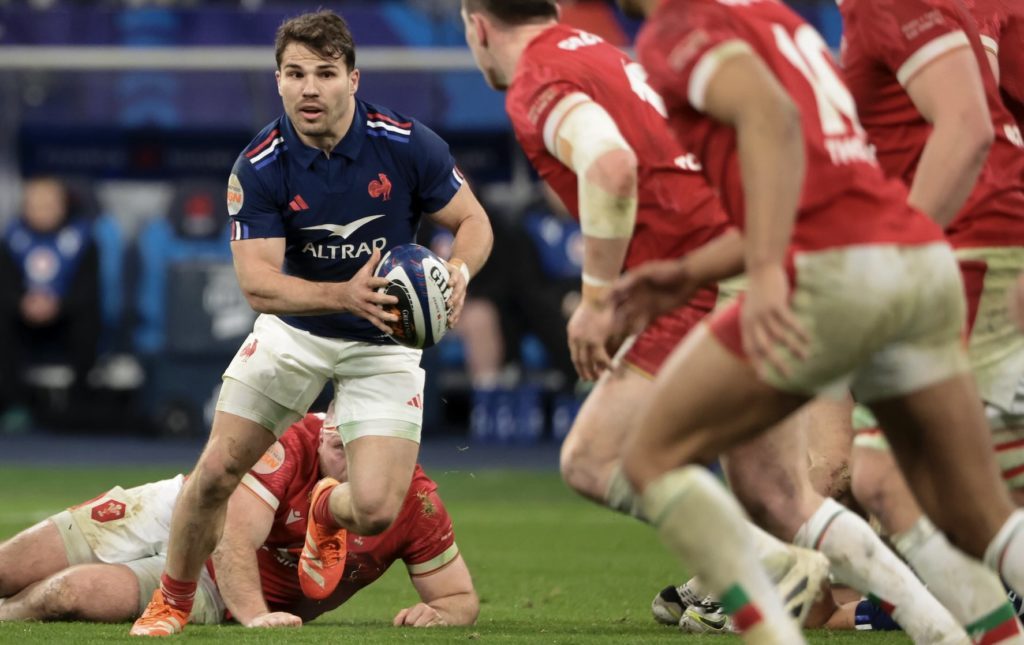
Antoine Dupont is the flex in a fantastic French match 23 that will be too powerful for Ireland in Paris in the Six Nations season opener.
Dupont alters the physics of the contest, and he adds an extra layer of muscle, authority and inevitability to a side already designed to win Test matches through force. His long injury absence is irrelevant now. What matters is what he brings back with him, and that is control, collision dominance and an edge.
Dupont is the best scrumhalf in the world and he he is the national team’s talisman.
But it is up front where all the work will be done for Dupont to play conductor. France’s selection confirm intent and physicality. It is a pack chosen for confrontation.
Jean-Baptiste Gros, Julien Marchand and Dorian Aldegheri are a front row built to scrum, carry and squeeze the life out of opponents, while locks Charles Ollivon and Mickaël Guillard bring physical presence, aerial dominance and edge in the tight exchanges. The back row of François Cros, Oscar Jegou and Anthony Jelonch are physically relentless and they feed off collisions.
This is a French pack that creates the tempo and then Dupont determines the range of this tempo.
Ireland’s pack has peaked and France coach Fabian Galthie would have studied their capitulation to world champions South Africa in Dublin last November. The Boks destroyed Ireland in the scrums and the collisions.
Props Thomas Clarkson and Jeremy Loughman face an enormous examination against Gros and Aldegheri, and if Ireland concede scrum dominance, their entire game model collapses because it is built on control, rhythm and precision rather than chaos.
The French halfback pairing only amplifies that threat. Matthieu Jalibert plays flatter and faster than the Ireland flyhalves of recent seasons, and Dupont’s presence ensures defenders are constantly torn between folding around the ruck or drifting early, a dilemma that France exploit ruthlessly.
Ireland’s continued struggle to replace the authority and game management of Johnny Sexton remains an issue. Sam Prendergast is a talent, but opening a Six Nations campaign in Paris against this French pack is a brutal assignment, and he will be targeted physically and mentally.
ALL THE 2026 SIX NATIONS FIXTURES
The Irish backline, stripped of key personnel, looks noticeably less imposing as a unit. Without Hugo Keenan at fullback, without the aerial pressure and edge of Mack Hansen and James Lowe on the wings, and without the direct power of Bundee Aki at inside centre, Ireland lack the punch that previously allowed them to play beyond the gain line.
France, by contrast, look balanced and settled, with Thomas Ramos offering control and goal-kicking, Louis Bielle-Biarrey providing genuine pace, and Jalibert bringing attacking ambition, supported by centres and wings comfortable in a collision-heavy Test.
Add the significance of the Stade de France on opening night, where French energy multiplies and visiting teams feel pressure accumulate with every lost carry and every retreating scrum, and the advantage tilts decisively towards the hosts. When France dominate the gain line and Dupont starts probing around fatigued forwards, Ireland will be forced to chase a game they are no longer structurally equipped to chase.
This is not about flair or reputation, it is about force, physical authority and control, and France hold the upper hand in the pack, at scrumhalf, off the bench and in the stands.
Just as they did in last season’s match-up in Dublin, which they won comfortably 42-27, having led 42-15 with five minutes to play.
AFRICA PICKS: ALL YOU NEED TO KNOW FOR YOUR FRANCE V IRELAND BETTING
My call: France 33 Ireland 22.
KEO News Wire
JP Pietersen & his street-smart Sharks school stuttering Stormers
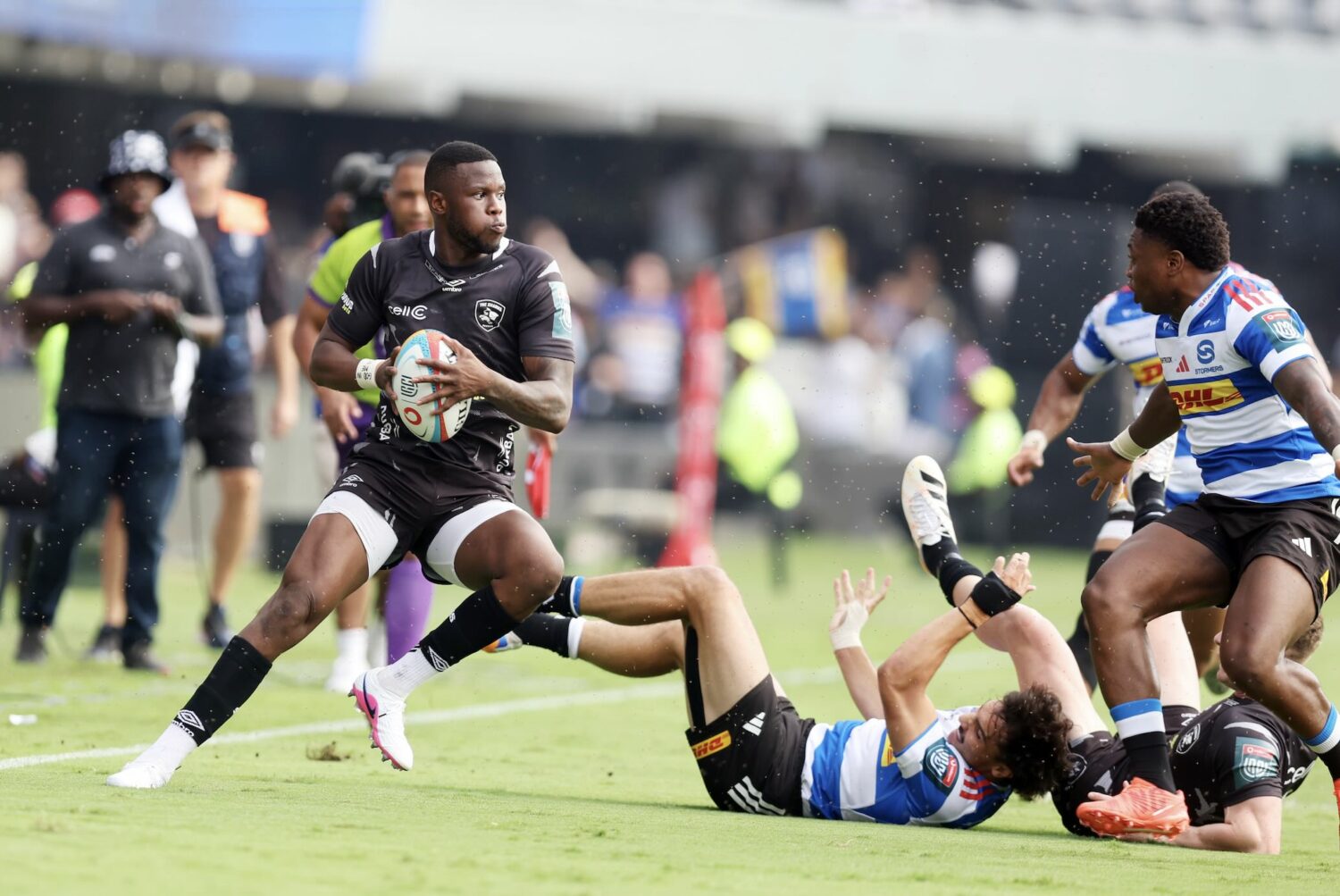
Give JP Pietersen the Sharks job and let him get on with it. He is not an interim measure. In the past fortnight he has done the double on the Stormers, and done it emphatically.
Pietersen, a presence of power and precision on the right wing in the Springboks 2007 Rugby World Cup title win in France, was given the Sharks head coaching job six weeks ago.
In that period, his team, so subdued and absent in the Investec Champions Cup and first eight rounds of the URC, have won four from five matches in all competitions. They have beaten Saracens in Durban in the Investec Champions Cup, hammered a makeshift Clermont and done the double over a Stormers team in the URC that had not lost in the league in eight matches.
Pietersen’s Sharks won 30-19 in Cape Town a week ago, having led 30-12 until the final minute, and in Durban a week later the 36-24 win was as emphatic.
The Stormers, pre the Sharks double header, were lauded for their attack and defensive structures. But they were outscored nine tries to five over 160 minutes, dominated in most facets, physically second to the Sharks in the moments that mattered and in the close exchanges, outthought, outplayed and out passioned.
In Cape Town too many suggested the Stormers were done a dirty by the referee. Already I am seeing a similar narrative on social media. Regardless, of the critique of match officials the Sharks won and the Stormers lost because over two Saturdays the Sharks were the better team, in game management, and in execution.
Pietersen has transformed the attitude of the squad. It is as much a compliment to the World Cup-winning wing, as it is an indictment on the situation under John Plumtree. These are the same players, but they look like two very different teams, coached by two very different individuals.
Pietersen’s decision to appoint Andre Esterhuizen as his captain, on the player’s 100th match, has proved inspirational. Esterhuizen has led and those around him have followed.
Individuals, so good for the Springboks, have played with the same intent and authority for the Sharks in the past fortnight,
Springboks, in the Sharks line-up, have played like current Springboks. The opposite has been true of the Stormers, who have looked fatigued, flat, confused in game plan, and in desperate need of a fortnight away from the game.
The Stormers have earned the right to drop a game or two because of a stunning eight successive wins in the league, but the nature of the back-to-back defeats can’t be ignored, which is disappointing.
The ill-discipline of Cape Town’s defeat continued in Durban. Two yellow cards in Cape Town and two in Durban. Repeated infringements, an inability to defend the Sharks line out maul, second in the collisions and second in most things.
The Stormers started the derby double header unbeaten and in 1st place. The Sharks were two wins from eight and in 14th. You would never have guessed that watching the 160 minutes.
There can be no argument from Stormers supporters. The Sharks did them, in the coaching game of chess, and on the field where the chess masters are the players.
Esterhuizen was supreme, Ethan Hooker was as strong, young Jaco Williams on the wing played like he had been there for a decade and No 9s Grant Williams and Jaden Hendrikse combined for the perfect package over 80 minutes. Williams plays with tempo and Hendrikse, when switched on, plays with poise.
The aerial battle was one-sided, in Cape Town and in Durban. This was a strength of the Stormers early season, but they couldn’t catch a high ball, even when gift wrapped with sticky gloves. The Sharks, in kick and chase, were superb.
The Sharks played like a team knowing every limitation and every strength. The Stormers continued to play like a team convinced they only have strengths.
Piestersen’s perspective has been refreshing, both in Cape Town and in Durban.
There has been a realism about him and his Sharks in the past fortnight and crazily there has been more romance than realism from a team that a month ago had not lost a game in any competition.
The Sharks head into the February break with one defeat from their last four matches, and the Stormers put their heads to a pillow with one win in their last four matches.
It makes for the most intriguing of returns in the latter part of February, when the URC resumes.
DOBBO AND SACHA RUE ILL-DISCIPLINE
ALL THE TEAMS AND MATCH-UPS FROM URC ROUND 11
KEO News Wire
Ackerman’s rampant Bulls go on the charge against Lions
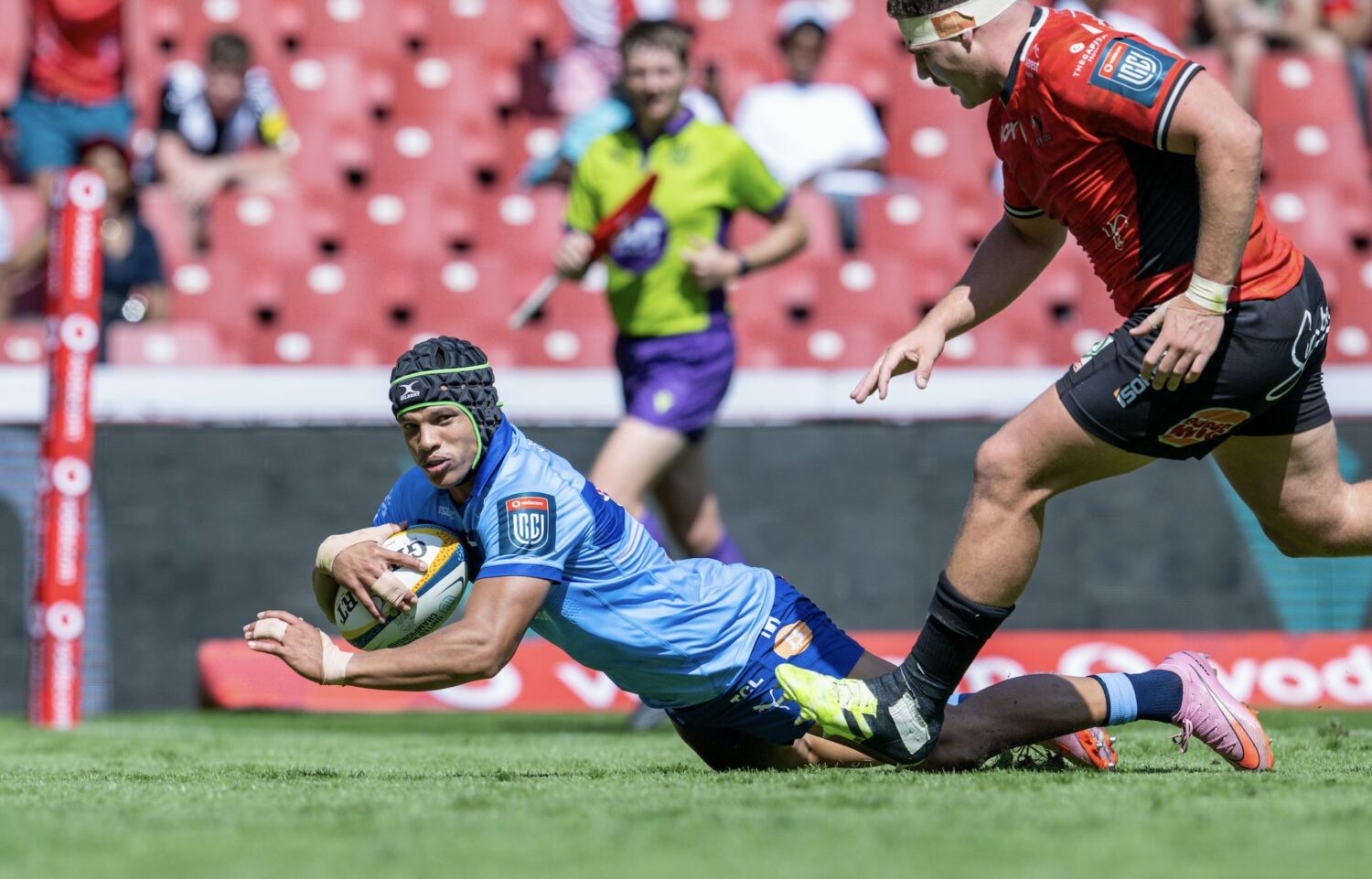
These are Johann Ackerman’s Bulls. Strong, physical, brave, enthusiastic, desperate and rugby intelligent. The Bulls who demolished the Lions 52-17 at Ellis Park in the Vodacom United Rugby Championship are the Bulls that have taken 14 matches in all competitions to confirm their 2025/26 season’s arrival.
The Bulls were so different, in every positive way, to the team playing a month ago.
They lost seven in a row in all competitions and were conceding on average 40 points a match and four-tries before half-time.
At Ellis Park, they kept the Lions scoreless for 40 minutes, conceded a try in the 45th minute and then coughed up one after the final whistle. In between they scored eight tries and dominated every facet.
They were very good in winning their third successive match on the road, in three different countries, after the horror run of seven defeats on the trot.
Ackerman once coached the Lions. They made two successive Super Rugby finals, hosting the Crusaders in the first one. He turned the Lions from a circus act into a national geographic documentary on why Lions should be respected.
It has taken two months longer than most thought, but now he is righting the wrongs of a Bulls team whose performances were a betrayal to the club’s history.
On Saturday, in the toughest of environments, a South African northern derby, the Bulls sent a message to every team in the league and to Glasgow, who they play in Glasgow in the Investec Champions Cup last 16 in April, that something has changed.
The bully boys in blue are back. Gone are the try-conceding fans of a freebie.
This is what Johan Ackermann has changed, as reflected in the post match reporting in South Africa.
1) The set-piece stopped being “a phase” and became a weapon
The Bulls earned the right to play, and it was not the Instagram version. This was real: scrum, lineout, maul threat, and then the carry pattern that forces defenders to make choices they don’t want to make. The tries were from repeat pressure and the Lions folding.
2) Discipline = possession that actually means something
“70% possession” is a dead stat if you hand it back with penalties, cheap turnovers and panic decisions. The Bulls didn’t. They played in the right areas early, squeezed the Lions, and were already out of sight at 26-3 at half-time. That’s control.
3) Defensive desire: no freebies and no soft shoulders
This was a Bulls attitude day more than a carnival all out attack day. This was 50 points scored because the pillars were bricks and not a hope for dodging quick sand areas at Ellis Park. The Bulls’ defensive work-rate and collision presence killed any Lions second half comeback prospects.
4) Carry, carry, carry… then strikes
This is the most important part: the Bulls’ attack looked better because the forwards made it simpler for everyone else. Hard carries, post-contact wins, and forward pods doing honest work so the backs don’t have to manufacture miracles from standing starts 20 metres beyond the gain line. This had Ackerman’s paw prints all over it.
5) Handre Pollard ran the game like a double World Cup winner
Pollard has been more accurate in games, but he played with presence and authority. With a functioning pack, led by a back three of Marcell Coetzee, Elrigh Louw and Jeandre Rudolph, Pollard played with the comfort of front foot ball and, outside of him, inside centre Harold Vorster looked like a teenager in his impact and enthusiasm.
WATCH: Keo and Zels on the Lions v Bulls
Scorers
Lions 17
-
Tries: Morne van den Berg, Bronson Mills
-
Conversions: Chris Smith (2)
-
Penalty: Chris Smith
Bulls 52
-
Tries: Harold Vorster (2), Johan Grobbelaar, Handré Pollard, Kurt-Lee Arendse, Embrose Papier, Mpilo Gumede, Keagan Johannes
-
Conversions: Pollard (5), Johannes
International Rugby
URC ROUND 11 – ALL YOU NEED TO KNOW
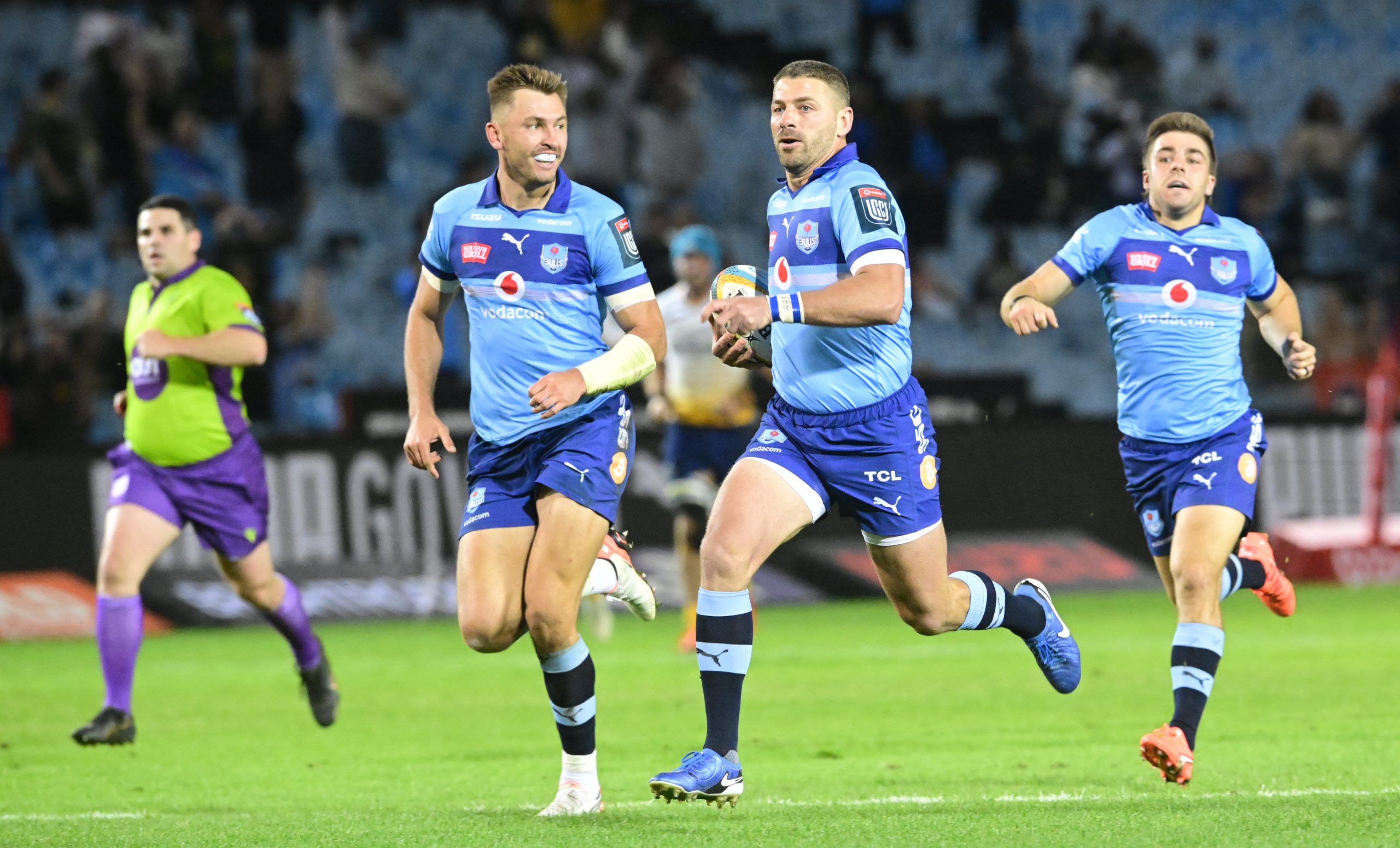
The Sharks host the Stormers in one of two South African URC derbies to end the first half of the league season. The Lions are at home to the Bulls in the northern derby. Here’s everything you need to know for the weekend’s Round 11 showdowns.
The South African teams have all chosen the best available squads in the last Saturday of the month and the last Saturday of URC action until the league resumes in the last weekend of February.
The Six Nations takes priority in February, with the first three rounds played before the URC starts up again for the last eight league matches and the play-offs.
The Stormers, beaten for the first time in the league last Saturday, get the chance of redemption in Durban. It was the Sharks who beat them in Cape Town. The same is true of the Lions and Bulls derby. The Lions earlier in the league, won at Loftus Versfeld in Pretoria.
Several of the Northern Hemisphere clubs are severely understrength for Round 11, as the leading current internationals have been in camp with their respective national teams preparing for next weekend’s Six Nations opening round.
It makes for a punter’s nightmare in these matches because the form guide is not a measurement with so many frontline players missing.
WATCH: KEO & ZELS ON SHARKS, STORMERS, LIONS & BULLS
AFRICA PICKS RUGBY: Keo calls the South African derbies
|
#BENvSCA
#GLAvMUN
#LIOvBUL
#SHAvSTO
#ZEBvCON
#LEIvEDI
#OSPvDRA
#ULSvCAR
|
|
FRIDAY, JANUARY 30 Benetton v Scarlets Stadio Monigo, Treviso – KO 19.45 IRE & UK / 20.45 ITA / 21.45 SA Referee: Andrew Brace (IRFU, 113th league game) AR 1: Clara Munarini (FIR) AR 2: Bisetto Luca (FIR) TMO: Olly Hodges (IRFU) Live on: Sky Italia, S4C, Premier Sports, SuperSport, Flo Rugby & URC.tv Benetton: Rhyno Smith, Ignacio Mendy, Paolo Odogwu, Malakai Fekitoa, Onisi Ratave, Nicolas Roger Farias, Andy Uren (CAPT), Thomas Gallo, Siua Maile, Marcos Gallorini, Giulio Marini, Eli Snyman, Alessandro Izekor, Jadin Kingi, So’otala Fa’aso’o Replacements: Bautista Bernasconi, Destiny Aminu, Tiziano Pasquali, Scott Scrafton, Nelson Casartelli, Alessandro Garbisi, Matt Gallagher, Filippo Drago
Scarlets: Jac Davies, Macs Page, Joe Roberts, Johnny Williams (CAPT), Tomi Lewis; Carwyn Leggatt-Jones, Gareth Davies, Alec Hepburn, Marnus van der Merwe, Archer Holz, Jac Price, Sam Lousi, Max Douglas, Jarrod Taylor, Fletcher Anderson Replacements: Harry Thomas, Josh Morse, Henry Thomas, Jake Ball, Dan Davis, Dane Blacker, Billy McBryde, Iori Badham Benetton Head Coach Calum MacRae said: “Scarlets are one of the Vodacom URC teams that uses the kicking game the most and builds their opportunities through territorial control. The aerial game is an area we definitely need to improve”
Scarlets Interim Director of Rugby Nigel Davies said: “We have looked at these Vodacom URC games, Ulster and Benetton, as a two-game series and it’s important we back up last weekend’s win – we’ve done the first bit, now our focus is on another massive game. “Benetton have recruited well, are coached well and play a good brand of rugby. Like us, they have players missing but will still be very strong. We have selected a side with a lot of talented young players who I am excited to see step up to the challenge on Friday night.” Glasgow Warriors v Munster Rugby Scotstoun Stadium, Glasgow – KO 19.45 IRE & UK / 20.45 ITA / 21.45 SA Referee: Craig Evans (WRU, 72nd league game) AR 1: Ian Kenny (SRU) AR 2: David Sutherland (SRU) TMO: Adam Jones (WRU) Live on: Premier Sports, TG4, SuperSport, Flo Rugby & URC.tv Glasgow Warriors: Josh McKay, Kyle Rowe, Stafford McDowall (CAPT), Kerr Yule, Ollie Smith, Dan Lancaster, Ben Afshar, Jamie Bhatti, Seb Stephen, Murphy Walker, Alex Craig, Jare Oguntibeju, Euan Ferrie, Angus Fraser, Ally Miller Replacements: Grant Stewart, Nathan McBeth, Sam Talakai, Dylan Cockburn, Sione Vailanu, Macenzzie Duncan, Jack Oliver, Matthew Urwin
Munster Rugby: Mike Haley, Thaakir Abrahams, Shane Daly, Dan Kelly, Diarmuid Kilgallen, Tony Butler, Ethan Coughlan, Josh Wycherley, Diarmuid Barron (CAPT), Oli Jager, Evan O’Connell, Fineen Wycherley, Seán Edogbo, Ruadhán Quinn, Brian Gleeson Replacements: Lee Barron, Mark Donnelly, John Ryan, Gavin Coombes, Jack O’Donoghue, Paddy Patterson, Tom Wood, Seán O’Brien Glasgow Warriors Head Coach Franco Smith said: “We are looking forward to seeing our full squad involved this weekend, with everyone eager to finish this block in the right manner.”
“Munster are a proud club with a strong heritage of challenging across all competitions – they will be pushing for the top four once again this season and will bring a strong, physical challenge tomorrow night. “Everyone is looking forward to the test that lies ahead, and running out in front of what’s set to be another sold out Scotstoun.”
|
| SATURDAY, JANUARY 31
Lions v Vodacom Bulls Ellis Park, Johannesburg – KO 12.30 IRE & UK / 13.30 ITA / 14.30 SA Referee: Morne Ferreira (SARU, 20th league game) AR 1: Hanru van Rooyen (SARU) AR 2: Sean Muller (SARU) TMO: Egon Seconds (SARU) Live on: SuperSport, Premier Sports, Flo Rugby & URC.tv Lions: Quan Horn, Angelo Davids, Henco van Wyk, Bronson Mills, Richard Kriel, Chris Smith, Morne van den Berg, SJ Kotze, PJ Botha, Asenathi Ntlabakanye, Ruben Schoeman, Reinhard Nothnagel, Jarod Cairns, Batho Hlekani, Francke Horn (CAPT) Replacements: Morne Brandon, RF Schoeman, Conraad van Vuuren, Etienne Oosthuizen, Darrien Landsberg, Renzo du Plessis, Haashim Pead, Erich Cronje Vodacom Bulls: Devon Williams, Stravino Jacobs, Stedman Gans, Harold Vorster, Kurt-Lee Arendse, Handre Pollard, Embrose Papier, Jan-Hendrik Wessels, Johan Grobbelaar, Wilco Louw, Ruan Vermaak, Reinhardt Ludwig, Marcell Coetzee (CAPT), Elrich Louw, Jeandre Rudolph Replacements: Marco van Staden, Alu Tshakweni, Mornay Smith, Cobus Wiese, Mpilo Gumede, Nizaam Carr, Keagan Johannes, David Kriel Vodacom Bulls Head Coach Johan Ackermann said: “The DNA of the Lions of being a running team is still there, so I expect them to play a fast game at Ellis Park because it was always one of our go-to strategies when I coached there. I think it will be an entertaining game.” ANDRE THE GIANT SLAUGHTERS STORMERS IN CAPE TOWN Hollywoodbets Sharks v DHL Stormers Hollywoodbets Kings Park, Durban – KO 15.00 IRE & UK / 16.00 ITA / 17.00 SA Referee: Christopher Allison (SARU, 7th league game) AR 1: Griffin Colby (SARU) AR 2: Jonathan Lottering (SARU) TMO: Quinton Immelman (SARU) Live on: SuperSport, Premier Sports, Flo Rugby & URC.tv Hollywoodbets Sharks: Aphelele Fassi, Edwill van der Merwe, Ethan Hooker, Andre Esterhuizen (CAPT), Jaco Williams, Jordan Hendrikse, Grant Williams, Ox Nche, Fez Mbatha, Hanro Jacobs, Corne Rahl, Emile van Heerden, Siya Kolisi, Vincent Tshituka, Phepsi Buthelezi Replacements: Eduan Swart, Phatu Ganyane, Vincent Koch, Jason Jenkins, Nick Hatton, Jaden Hendrikse, Siya Masuku, Jurenzo Julius DHL Stormers: Damian Willemse, Dylan Maart, Wandisile Simelane, Jonathan Roche, Leolin Zas, Sacha Feinberg-Mngomezulu (CAPT), Cobus Reinach, Oli Kebble, André-Hugo Venter, Neethling Fouché, Adré Smith, Ruben van Heerden, Paul de Villiers, Ben-Jason Dixon, Evan Roos Replacements: JJ Kotzé, Ntuthuko Mchunu, Zachary Porthen, JD Schickerling, Marcel Theunissen, Stefan Ungerer, Jurie Matthee, Warrick Gelant Zebre Parma v Connacht Rugby Stadio Lanfranchi, Parma – KO 15.00 IRE & UK / 16.00 ITA / 17.00 SA Referee: Ben Whitehouse (WRU, 113th league game) AR 1: Fillipo Russo (FIR) AR 2: Lorenzo Pedezzi (FIR) TMO: Keith David (WRU) Live on: Sky Italia, TG4, Premier Sports, SuperSport, Flo Rugby & URC.tv Zebre Parma: Giovanni Montemauri, Mirko Belloni, Giulio Bertaccini, Marco Zanon, Simone Gesi, Martin Roger Farias, Gonzalo Garcia, Paolo Buonfiglio, Giampietro Ribaldi, Enrique Pieretto, Matteo Canali, Leonard Krumov (CAPT), Giacomo Ferrari, Iacopo Bianchi, Davide Ruggeri Replacements: Shilo Klein, Luca Franceschetto, Juan Pitinari, Franco Carrera, Alessandro Ortombina, Thomas Dominguez, Enrico Lucchin, Bautista Stavile Connacht Rugby: Sam Gilbert, Shane Jennings, Harry West, Cathal Forde, Chay Mullins, Josh Ioane, Caolin Blade, Jordan Duggan, Dylan Tierney-Martin, Jack Aungier, Josh Murphy, Joe Joyce, Paul Boyle (CAPT), Sean O’Brien, Sean Jansen Replacements: Matthew Victory, Peter Dooley, Fiachna Barrett, David O’Connor, Niall Murray, Ben Murphy, Sean Naughton, Oisín McCormack Connacht Rugby Head Coach Stuart Lancaster said: “We were all gutted not to win last week on such a special night for the club, but we’ve had to quickly move on. The same amount of points are on offer this weekend and we know a win will keep us in the hunt for a playoff spot. We’re obviously missing the lads away on Ireland duty but overall, we’ve been able to keep selection relatively consistent these last few weeks, particularly in the backs. It’s been a long stretch of games, but we’ll do everything we can to finish it on a high and hopefully head into the next block of games with a spring in our step.”
Leinster Rugby v Edinburgh Rugby Aviva Stadium, Dublin – KO 17.30 IRE & UK / 18.30 ITA / 19.30 SA Referee: Andrea Piardi (FIR, 59th league game) AR 1: Eoghan Cross (IRFU) AR 2: Shane Gaughan (IRFU) TMO: Matteo Liperini (FIR) Live on: Premier Sports, SuperSport, Flo Rugby & URC.tv Leinster Rugby: Andrew Osborne, Joshua Kenny, Rieko Ioane, Ciarán Mangan, Ruben Moloney, Charlie Tector, Luke McGrath (CAPT), Jerry Cahir, John Mckee, Andrew Sparrow, RG Snyman, Brian Deeny, Max Deegan, Scott Penny, Diarmuid Mangan Replacements: Gus McCarthy, Alex Usanov, Niall Smyth, Conor O’Tighearnaigh, Josh Ericson, Will Connors, Fintan Gunne, Hugo McLaughlin
Edinburgh Rugby: Harry Paterson, Malelili Satala, Wes Goosen, James Lang, Duhan van der Merwe, Ross Thompson, Ben Vellacott; Boan Venter, Jerry Blyth-Lafferty, Paul Hill, Callum Hunter-Hill, Glen Young, Ben Muncaster, Freddy Douglas, Magnus Bradbury (CAPT) Replacements: Harri Morris, Mikey Jones, Ollie Blyth-Lafferty, Tom Dodd, Connor Boyle, Charlie Shiel, Cammy Scott, Piers O’Conor Leinster Rugby Assistant Coach Robin McBryde said: “Edinburgh are a pretty cohesive bunch. I think they’ll be hurting after their result last weekend. They’ll be keen to finish this block on a high as well. It’s always good to finish on a victory before any sort of break because the result sits with you. So it’ll be tough enough. We’ve just got to improve on certain aspects of the game from last Saturday and really knuckle down.” Edinburgh Rugby Head Coach Sean Everitt said: “Going away to Leinster is one of the toughest tests in the Vodacom URC, but it’s a challenge we’re ready to embrace – we’re going over there to have a real crack at it. “Magnus [Bradbury] resumes the captaincy and his experience in these big away fixtures is invaluable for the group. “We know exactly what we are capable of when we put it all together. The key for us this week is a complete 80-minute performance to get the result we want.” Ospreys v Dragons RFC Electric Brewery Field, Bridgend – KO 19.45 IRE & UK / 20.45 ITA / 21.45 SA Referee: Ben Connor (WRU, 7th league game) AR 1: Ben Breakspear (WRU) AR 2: Carwyn Sion (WRU) TMO: Jenny Davies (WRU) Live on: S4C, Premier Sports, SuperSport, Flo Rugby & URC.tv Ospreys: Iestyn Hopkins, Dan Kasende, Phil Cokanasiga, Keiran Williams, Keelan Giles, Jack Walsh (C.CAPT), Reuben Morgan-Williams, Gareth Thomas, Sam Parry (C.CAPT), Tom Botha, James Fender, Ryan Smith, James Ratti, Ross Moriarty, Morgan Morse Replacements: Lewis Lloyd, Steffan Thomas, Rhys Henry, Marco de Witt, Gwilym Evans, Cormac Foley, Max Nagy, Harri Houston Dragons RFC: Angus O’Brien (CAPT), David Richards, Fine Inisi, Aneurin Owen, Rio Dyer, Tinus de Beer, Che Hope, Wyn Jones, Brodie Coghlan, Robert Hunt, Levi Douglas, Seb Davies, Ryan Woodman, Harry Beddall, Harri Keddie Replacements: Oli Burrows, Jordan Morris, Cebo Dlamini, Shane Lewis-Hughes, Evan Minto, Rhodri Williams, Fetuli Paea, Cai Evans Dragons RFC Coach Dale MacLeod said: “Ospreys will be tough. They are a team with a big forward pack, they general start well and are tough to beat at home. “It’s exciting that all four Welsh teams are starting to put some performances together, through all the emotion going on. “They’ll be two good teams playing, I don’t think there will be much in it, and it will be about who holds their head, stays in the game, and owns the little moments. “We’re looking forward to it, they will be too, so it’s going to be a massive challenge.” Ulster Rugby v Cardiff Rugby Affidea Stadium, Belfast – KO 19.45 IRE & UK / 20.45 ITA / 21.45 SA Referee: Hollie Davidson (SRU, 26th league game) AR 1: Robbie Jenkinson (IRFU) AR 2: Sam Holt (IRFU) TMO: Mike Adamson (SRU) Live on: Premier Sports, SuperSport, Flo Rugby & URC.tv Ulster Rugby: Ethan McIlroy, Werner Kok, James Hume, Ben Carson, Zac Ward, Jack Murphy, Conor McKee, Angus Bell, Rob Herring, Scott Wilson, Iain Henderson (CAPT), Charlie Irvine, Matthew Dalton, Marcus Rea, David McCann Replacements: James McCormick, Sam Crean, Bryan O’Connor Harry Sheridan, Lorcan McLoughlin, David Shanahan, Jake Flannery, Ben Moxham Cardiff Rugby: Cam Winnett, Ioan Lloyd, Harri Millard, Steffan Emanuel, Tom Bowen, Callum Sheedy, Johan Mulder, Rhys Barratt, Evan Lloyd, Javan Sebastian, Josh McNally (CAPT), George Nott, Alun Lawrence, Dan Thomas, Taine Basham Replacements: Daf Hughes, Danny Southworth, Joe Cowell, Rory Thornton, Lucas de la Rua, Aled Davies, Elijah Evans, Leigh Halfpenny Cardiff Rugby Coach Corniel van Zyl said: “There’s a real excitement about going up to Belfast and putting in a good performance. That’s been the big aim for the week. “Like every club at this stage of the season, we’re in the same boat. We are missing players to the international game, and it tests our squad. But it is an opportunity and that’s how we’re treating it. “What we’ve seen from Ulster is a team that’s very good at keeping the ball in hand and moving the point of contact. We’ll have to be very good defensively to stay in front of them and keep them out. “They’re very potent in the 22. They’re probably one of the top teams for points scored per entry, so we’ll have to be smart around that.” |
-
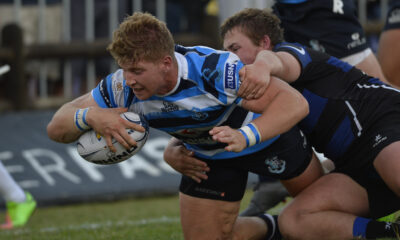
 KEO News Wire3 days ago
KEO News Wire3 days agoSouth Africa’s State of Origin – our Schools system works
-
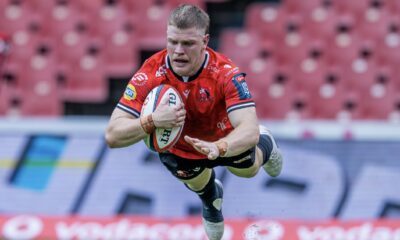
 International Rugby6 days ago
International Rugby6 days agoURC: Julius stars but the Lions roar loudest at Ellis Park
-

 International Rugby6 days ago
International Rugby6 days agoIreland find their identity & Scotland find a way to win away from home
-
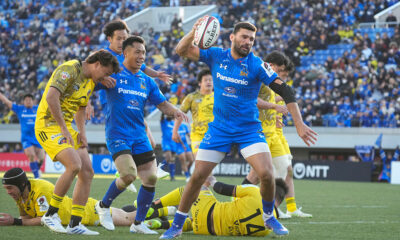
 International Rugby2 days ago
International Rugby2 days agoBok Damian de Allende is the best No 12 in the world

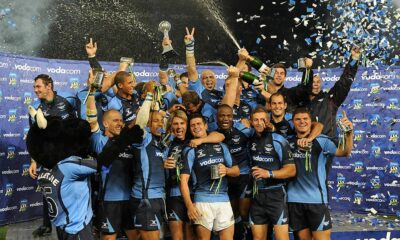

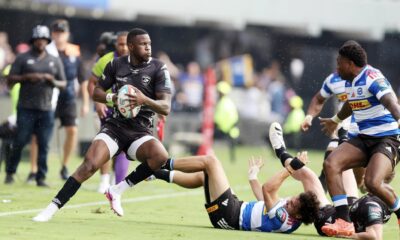

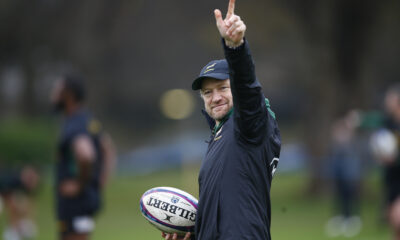

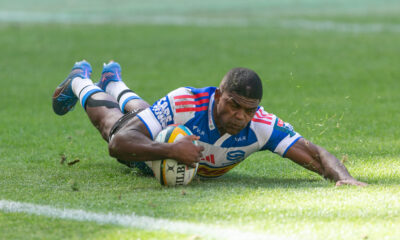

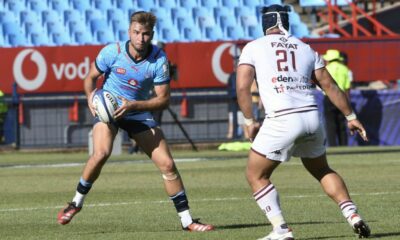

😈💦 Sex Dating. Let's Go >> yandex.com/poll/LZW8GPQdJg3xe5C7gt95bD?hs=5c5dd0148f1316c426f0c76c450b1160& Notification # 8899 😈💦
5th December 2025 at 11:04 pm
9m2u3x
Angelo Nevius
16th December 2025 at 9:41 am
I was reading some of your content on this site and I conceive this site is very informative ! Keep on putting up.
fdertolmrtokev
20th December 2025 at 10:49 am
Good day very nice web site!! Guy .. Excellent .. Wonderful .. I will bookmark your site and take the feeds also?KI’m glad to find a lot of useful info here in the post, we want work out extra strategies on this regard, thanks for sharing. . . . . .
alquiler furgonetas 12 plazas sin conductor
30th December 2025 at 1:06 am
I got good info from your blog
Javier Jacomet
30th December 2025 at 9:32 am
I’ve been absent for some time, but now I remember why I used to love this web site. Thank you, I¦ll try and check back more frequently. How frequently you update your website?
apartamentos
30th December 2025 at 11:31 pm
I appreciate, cause I found just what I was looking for. You’ve ended my 4 day long hunt! God Bless you man. Have a nice day. Bye
⛓️ Sex Dating. Send => yandex.com/poll/43o224okZdReGRb1Q8PXXJ?hs=5c5dd0148f1316c426f0c76c450b1160& Alert № YPRW1448835 ⛓️
3rd January 2026 at 10:57 pm
wpqgow
suíte praia do rosa
13th January 2026 at 10:29 pm
I like this post, enjoyed this one thank you for posting. “We are punished by our sins, not for them.” by Elbert Hubbard.
rateios de cursos
14th January 2026 at 7:09 am
My husband and i were satisfied when Albert could round up his analysis while using the ideas he was given out of the web page. It’s not at all simplistic just to happen to be handing out tips and tricks that many some people have been selling. And we also know we’ve got the writer to thank for that. Those illustrations you’ve made, the straightforward blog menu, the friendships you will make it easier to promote – it’s many awesome, and it is aiding our son in addition to our family consider that that idea is brilliant, which is certainly incredibly serious. Many thanks for everything!
tlovertonet
14th January 2026 at 9:50 am
Good site! I truly love how it is simple on my eyes and the data are well written. I’m wondering how I might be notified when a new post has been made. I have subscribed to your feed which must do the trick! Have a great day!
onewave solar water heater Malaysia
15th January 2026 at 2:48 am
I truly enjoy studying on this internet site, it has wonderful blog posts.
Automotive College in Malaysia
15th January 2026 at 5:28 am
Perfect work you have done, this web site is really cool with excellent information.
live casino online games
15th January 2026 at 9:33 am
Pretty section of content. I just stumbled upon your blog and in accession capital to assert that I get in fact enjoyed account your blog posts. Anyway I will be subscribing to your feeds and even I achievement you access consistently rapidly.
klia limo
15th January 2026 at 2:41 pm
I know this if off topic but I’m looking into starting my own weblog and was curious what all is needed to get setup? I’m assuming having a blog like yours would cost a pretty penny? I’m not very internet smart so I’m not 100 sure. Any recommendations or advice would be greatly appreciated. Many thanks
mercedes workshop near me
15th January 2026 at 6:29 pm
Thank you for some other informative blog. The place else may I am getting that type of info written in such a perfect manner? I’ve a mission that I’m just now working on, and I have been at the look out for such info.
kilat333
16th January 2026 at 1:06 pm
I like this web blog so much, saved to bookmarks.
kilat333 link
16th January 2026 at 3:07 pm
Enjoyed examining this, very good stuff, thankyou.
kilat333
16th January 2026 at 5:55 pm
Good info. Lucky me I reach on your website by accident, I bookmarked it.
pricing
16th January 2026 at 10:40 pm
you are really a good webmaster. The website loading speed is amazing. It seems that you’re doing any unique trick. In addition, The contents are masterwork. you’ve done a great job on this topic!
backdrop banner
17th January 2026 at 5:35 am
Do you mind if I quote a few of your articles as long as I provide credit and sources back to your site? My blog is in the very same niche as yours and my visitors would truly benefit from some of the information you present here. Please let me know if this okay with you. Appreciate it!
lottochamp reviews
17th January 2026 at 8:05 pm
I’m still learning from you, but I’m making my way to the top as well. I definitely enjoy reading everything that is posted on your site.Keep the tips coming. I loved it!
kerassentials review
18th January 2026 at 7:40 am
Rattling clear site, regards for this post.
kilat333
18th January 2026 at 4:21 pm
I’ve learn a few good stuff here. Definitely worth bookmarking for revisiting. I surprise how so much attempt you put to make this type of great informative site.
pink salt trick
18th January 2026 at 5:25 pm
Some truly nice and utilitarian information on this internet site, as well I believe the layout has excellent features.
gelatin trick for weight loss
18th January 2026 at 7:41 pm
Would love to forever get updated outstanding website! .
gelatin trick
18th January 2026 at 8:36 pm
It’s a shame you don’t have a donate button! I’d without a doubt donate to this superb blog! I suppose for now i’ll settle for book-marking and adding your RSS feed to my Google account. I look forward to fresh updates and will share this blog with my Facebook group. Chat soon!
royal138
19th January 2026 at 4:18 am
You are my breathing in, I own few web logs and often run out from to post : (.
gelatin trick for weight loss
19th January 2026 at 6:25 am
Hello! I know this is kinda off topic but I was wondering if you knew where I could locate a captcha plugin for my comment form? I’m using the same blog platform as yours and I’m having difficulty finding one? Thanks a lot!
kilat333
19th January 2026 at 1:15 pm
I genuinely enjoy looking at on this internet site, it contains fantastic content. “Those who complain most are most to be complained of.” by Matthew Henry.
login susterslot
19th January 2026 at 8:44 pm
I discovered your weblog web site on google and check a few of your early posts. Continue to keep up the superb operate. I just additional up your RSS feed to my MSN Information Reader. Searching for forward to studying extra from you in a while!…
togel online pria4d
20th January 2026 at 1:33 am
Deference to website author, some good information .
top up royal dream
20th January 2026 at 6:24 am
I am curious to find out what blog system you have been using? I’m experiencing some small security issues with my latest site and I would like to find something more secure. Do you have any solutions?
rtp slot
20th January 2026 at 11:38 am
Great write-up, I am regular visitor of one’s blog, maintain up the nice operate, and It’s going to be a regular visitor for a lengthy time.
royal138
20th January 2026 at 2:13 pm
Hi there, I found your blog via Google while searching for a related topic, your web site came up, it looks good. I have bookmarked it in my google bookmarks.
zabornatorilon
21st January 2026 at 9:30 pm
I would like to thank you for the efforts you’ve put in writing this web site. I’m hoping the same high-grade web site post from you in the upcoming also. In fact your creative writing skills has encouraged me to get my own web site now. Really the blogging is spreading its wings fast. Your write up is a great example of it.
optivell reviews
21st January 2026 at 11:51 pm
I keep listening to the news talk about receiving free online grant applications so I have been looking around for the best site to get one. Could you advise me please, where could i acquire some?
kilat333
22nd January 2026 at 7:16 am
I have been browsing on-line greater than 3 hours these days, but I by no means discovered any interesting article like yours. It¦s beautiful price enough for me. In my view, if all site owners and bloggers made good content material as you did, the net will probably be much more helpful than ever before.
best electric razor for men
22nd January 2026 at 12:11 pm
you’re actually a just right webmaster. The website loading velocity is incredible. It sort of feels that you are doing any distinctive trick. Moreover, The contents are masterpiece. you’ve performed a magnificent process on this subject!
fizzclean review
22nd January 2026 at 7:18 pm
Great line up. We will be linking to this great article on our site. Keep up the good writing.
listas iptv futbol
22nd January 2026 at 8:40 pm
I am often to blogging and i really appreciate your content. The article has really peaks my interest. I am going to bookmark your site and keep checking for new information.
fizzclean review
22nd January 2026 at 10:16 pm
I have been reading out a few of your posts and i can claim pretty good stuff. I will surely bookmark your website.
flixy tv
23rd January 2026 at 5:34 am
I like this internet site because so much utile material on here : D.
nuroclean
23rd January 2026 at 2:43 pm
As a Newbie, I am continuously browsing online for articles that can aid me. Thank you
jc floricultura coroa urgente
23rd January 2026 at 7:49 pm
There is visibly a bunch to know about this. I believe you made certain good points in features also.
wellaheat socks
23rd January 2026 at 10:00 pm
Magnificent website. Lots of useful info here. I’m sending it to some friends ans also sharing in delicious. And of course, thanks for your sweat!
wellaheat socks
24th January 2026 at 5:02 am
Super-Duper blog! I am loving it!! Will come back again. I am taking your feeds also.
Compra de baixela de prata
24th January 2026 at 12:44 pm
A powerful share, I just given this onto a colleague who was doing slightly analysis on this. And he in truth purchased me breakfast because I found it for him.. smile. So let me reword that: Thnx for the treat! However yeah Thnkx for spending the time to debate this, I really feel strongly about it and love reading more on this topic. If doable, as you grow to be experience, would you thoughts updating your blog with more details? It is extremely helpful for me. Huge thumb up for this weblog post!
iblbet login
24th January 2026 at 2:45 pm
I envy your work, regards for all the interesting articles.
agen slot
24th January 2026 at 6:33 pm
Thank you for sharing with us, I think this website truly stands out : D.
kilat333
24th January 2026 at 8:38 pm
Great website! I am loving it!! Will come back again. I am bookmarking your feeds also
Prioritize high-impact savings first
25th January 2026 at 12:47 am
After all, what a great site and informative posts, I will upload inbound link – bookmark this web site? Regards, Reader.
the brain song review
25th January 2026 at 3:17 pm
It’s the best time to make some plans for the future and it is time to be happy. I’ve learn this put up and if I may I wish to recommend you some attention-grabbing things or suggestions. Maybe you can write next articles referring to this article. I wish to read more issues about it!
testar iptv 6 horas
25th January 2026 at 3:34 pm
I will immediately grab your rss feed as I can’t find your e-mail subscription link or newsletter service. Do you’ve any? Kindly let me know so that I could subscribe. Thanks.
lotto champ
25th January 2026 at 6:22 pm
You actually make it appear so easy together with your presentation but I find this topic to be really one thing that I think I’d by no means understand. It kind of feels too complicated and very wide for me. I am looking forward in your next submit, I will try to get the hold of it!
kilat333
25th January 2026 at 7:31 pm
Excellent web site. A lot of helpful information here. I’m sending it to some pals ans also sharing in delicious. And naturally, thank you to your effort!
Dust Test Chamber
25th January 2026 at 11:06 pm
Good day! Would you mind if I share your blog with my facebook group? There’s a lot of folks that I think would really enjoy your content. Please let me know. Many thanks
men balance pro
25th January 2026 at 11:50 pm
You made some respectable factors there. I looked on the internet for the problem and located most people will associate with along with your website.
internal communication platform
26th January 2026 at 1:37 am
With havin so much content and articles do you ever run into any issues of plagorism or copyright violation? My blog has a lot of exclusive content I’ve either authored myself or outsourced but it seems a lot of it is popping it up all over the internet without my agreement. Do you know any techniques to help reduce content from being stolen? I’d certainly appreciate it.
boostaro
26th January 2026 at 3:44 am
I got good info from your blog
7swin
26th January 2026 at 4:50 am
Thankyou for this howling post, I am glad I noticed this website on yahoo.
slimburn drops
26th January 2026 at 6:42 am
Thank you for another great post. Where else could anybody get that type of info in such a perfect way of writing? I have a presentation next week, and I am on the look for such information.
optivell
26th January 2026 at 1:23 pm
Keep working ,splendid job!
bariatric gelatin trick
26th January 2026 at 3:12 pm
Very good written information. It will be beneficial to everyone who utilizes it, as well as yours truly :). Keep up the good work – looking forward to more posts.
jello diet trend 2026
26th January 2026 at 9:33 pm
It’s actually a nice and useful piece of information. I’m glad that you shared this helpful information with us. Please keep us up to date like this. Thanks for sharing.
gelatin trick recipe
26th January 2026 at 11:36 pm
You actually make it appear so easy with your presentation however I find this matter to be really something which I think I’d never understand. It seems too complicated and extremely large for me. I am having a look forward on your next post, I will try to get the dangle of it!
kilat333
27th January 2026 at 1:18 am
It’s really a great and useful piece of information. I’m glad that you simply shared this helpful information with us. Please keep us informed like this. Thank you for sharing.
the brain song
27th January 2026 at 3:57 am
I’d should check with you here. Which isn’t something I usually do! I take pleasure in reading a submit that may make people think. Also, thanks for permitting me to comment!
slot online
27th January 2026 at 6:44 am
Its fantastic as your other content : D, thanks for putting up. “A lost battle is a battle one thinks one has lost.” by Ferdinand Foch.
kilat333
27th January 2026 at 1:17 pm
Thank you for sharing with us, I believe this website really stands out : D.
iptv 4k samsung
27th January 2026 at 5:34 pm
My brother suggested I might like this website. He was entirely right. This post truly made my day. You cann’t imagine just how much time I had spent for this information! Thanks!
iptv assinar
27th January 2026 at 9:31 pm
Hey there are using WordPress for your site platform? I’m new to the blog world but I’m trying to get started and set up my own. Do you require any coding expertise to make your own blog? Any help would be really appreciated!
cara jualan online di fb buat pemula
28th January 2026 at 12:42 am
I got good info from your blog
royal138 pengacara
28th January 2026 at 2:40 am
Its like you read my mind! You appear to know so much about this, like you wrote the book in it or something. I think that you can do with some pics to drive the message home a little bit, but instead of that, this is great blog. An excellent read. I will definitely be back.
jewelry manufacture
28th January 2026 at 11:53 am
Hey there, You have performed a fantastic job. I’ll certainly digg it and in my view suggest to my friends. I’m sure they’ll be benefited from this site.
Chinese green tea
28th January 2026 at 3:43 pm
Just wanna tell that this is handy, Thanks for taking your time to write this.
david hoffmeister wikipedia
29th January 2026 at 11:09 am
certainly like your website but you need to check the spelling on several of your posts. Several of them are rife with spelling issues and I to find it very troublesome to tell the truth nevertheless I’ll certainly come back again.
wikiwax blog
29th January 2026 at 1:18 pm
F*ckin’ awesome things here. I’m very satisfied to look your article. Thank you so much and i’m having a look ahead to contact you. Will you please drop me a mail?
igm247 live chat
29th January 2026 at 7:33 pm
I discovered your weblog website on google and examine a few of your early posts. Continue to keep up the excellent operate. I just extra up your RSS feed to my MSN Information Reader. Looking for forward to studying extra from you afterward!…
resume
30th January 2026 at 1:29 am
Along with every thing that seems to be developing inside this particular area, many of your viewpoints are generally very refreshing. Nonetheless, I am sorry, because I do not subscribe to your entire plan, all be it refreshing none the less. It appears to us that your commentary are not entirely justified and in reality you are generally your self not fully certain of the argument. In any case I did appreciate reading through it.
bariatric gelatin trick
30th January 2026 at 11:47 am
This blog is definitely rather handy since I’m at the moment creating an internet floral website – although I am only starting out therefore it’s really fairly small, nothing like this site. Can link to a few of the posts here as they are quite. Thanks much. Zoey Olsen
gelatin trick for weight loss
30th January 2026 at 1:54 pm
I’m often to blogging and i really admire your content. The article has really peaks my interest. I am going to bookmark your web site and preserve checking for brand spanking new information.
gelatin trick
30th January 2026 at 3:58 pm
I will immediately grab your rss as I can not find your e-mail subscription link or newsletter service. Do you have any? Please let me know in order that I could subscribe. Thanks.
gelatin trick recipe
30th January 2026 at 11:26 pm
Woah! I’m really enjoying the template/theme of this blog. It’s simple, yet effective. A lot of times it’s hard to get that “perfect balance” between usability and visual appeal. I must say you’ve done a excellent job with this. Additionally, the blog loads extremely quick for me on Firefox. Excellent Blog!
gelatin trick
31st January 2026 at 10:21 am
Wonderful website. A lot of useful information here. I am sending it to some buddies ans additionally sharing in delicious. And obviously, thank you on your effort!
gelatin trick
31st January 2026 at 1:26 pm
Very interesting details you have remarked, thankyou for putting up.
ghdrol
31st January 2026 at 4:55 pm
I conceive this site holds some real good information for everyone :D. “I like work it fascinates me. I can sit and look at it for hours.” by Jerome K. Jerome.
ghdrol funciona
31st January 2026 at 11:29 pm
I’m not that much of a online reader to be honest but your blogs really nice, keep it up! I’ll go ahead and bookmark your site to come back in the future. Cheers
certified ethical hacker (ceh)
1st February 2026 at 9:00 pm
Can I just say what a relief to find someone who actually knows what theyre talking about on the internet. You definitely know how to bring an issue to light and make it important. More people need to read this and understand this side of the story. I cant believe youre not more popular because you definitely have the gift.
top up royal dream
2nd February 2026 at 3:26 am
I love it when people come together and share opinions, great blog, keep it up.
jili games
2nd February 2026 at 6:22 am
Your style is so unique compared to many other people. Thank you for publishing when you have the opportunity,Guess I will just make this bookmarked.2
Custom Flashpay card
2nd February 2026 at 1:25 pm
Great – I should definitely pronounce, impressed with your website. I had no trouble navigating through all tabs as well as related information ended up being truly simple to do to access. I recently found what I hoped for before you know it in the least. Reasonably unusual. Is likely to appreciate it for those who add forums or anything, site theme . a tones way for your customer to communicate. Nice task..
ethical hackers for hire
2nd February 2026 at 5:27 pm
Thankyou for this post, I am a big fan of this web site would like to go along updated.
top up royal dream
2nd February 2026 at 7:16 pm
Very interesting details you have mentioned, thankyou for posting.
led face mask
4th February 2026 at 3:50 am
Hello, Neat post. There is a problem with your website in internet explorer, might check this?K IE still is the market leader and a large portion of people will leave out your wonderful writing due to this problem.
pcxwin
4th February 2026 at 6:26 am
I am often to blogging and i actually admire your content. The article has actually peaks my interest. I’m going to bookmark your website and preserve checking for new information.
pcxwin
4th February 2026 at 8:13 am
Thank you for sharing superb informations. Your site is so cool. I’m impressed by the details that you have on this web site. It reveals how nicely you perceive this subject. Bookmarked this website page, will come back for more articles. You, my pal, ROCK! I found simply the information I already searched all over the place and just could not come across. What a perfect site.
flixy tv
4th February 2026 at 12:08 pm
The subsequent time I read a weblog, I hope that it doesnt disappoint me as a lot as this one. I imply, I do know it was my option to read, but I really thought youd have one thing interesting to say. All I hear is a bunch of whining about one thing that you could fix for those who werent too busy on the lookout for attention.
tonic greens
5th February 2026 at 8:44 am
This is a topic close to my heart cheers, where are your contact details though?
boostaro
5th February 2026 at 3:40 pm
Some really nice and utilitarian information on this site, also I believe the layout has great features.
vigorlong
6th February 2026 at 3:55 am
Hello there! I know this is kinda off topic but I was wondering if you knew where I could find a captcha plugin for my comment form? I’m using the same blog platform as yours and I’m having problems finding one? Thanks a lot!
Concurso MPE PI 2025
6th February 2026 at 2:52 pm
Hey would you mind sharing which blog platform you’re using? I’m planning to start my own blog in the near future but I’m having a tough time selecting between BlogEngine/Wordpress/B2evolution and Drupal. The reason I ask is because your layout seems different then most blogs and I’m looking for something completely unique. P.S Sorry for getting off-topic but I had to ask!
Concurso MPE MS 2025
6th February 2026 at 7:24 pm
I just wanted to type a small remark so as to say thanks to you for the amazing solutions you are giving out on this website. My extended internet lookup has at the end of the day been paid with high-quality facts and strategies to go over with my company. I ‘d assert that most of us readers are extremely fortunate to live in a fantastic network with very many brilliant professionals with good strategies. I feel very lucky to have discovered your entire website and look forward to so many more brilliant times reading here. Thank you once more for a lot of things.
Preparatório Educação RS 2025
6th February 2026 at 10:23 pm
Hello, Neat post. There is an issue with your website in web explorer, would test thisK IE nonetheless is the marketplace leader and a big component to other folks will pass over your magnificent writing because of this problem.
PEB II Língua Portuguesa Estratégia
7th February 2026 at 4:18 am
It’s really a nice and useful piece of information. I am happy that you simply shared this helpful info with us. Please stay us up to date like this. Thanks for sharing.
bandar togel
7th February 2026 at 5:17 pm
Howdy very cool web site!! Guy .. Beautiful .. Amazing .. I will bookmark your website and take the feeds also…I’m glad to find numerous helpful information here in the put up, we’d like develop more strategies on this regard, thank you for sharing. . . . . .
seoul massage
7th February 2026 at 10:04 pm
I have been reading out some of your stories and i must say nice stuff. I will definitely bookmark your website.
painel iptv
8th February 2026 at 4:28 pm
Hello very nice blog!! Guy .. Excellent .. Wonderful .. I will bookmark your site and take the feeds additionallyKI’m satisfied to seek out numerous useful information here within the post, we’d like develop more strategies on this regard, thanks for sharing. . . . . .
kilat333
9th February 2026 at 2:01 am
Hello there, You’ve done a fantastic job. I will definitely digg it and in my view suggest to my friends. I’m sure they’ll be benefited from this web site.
pcxwin
9th February 2026 at 5:32 pm
Hi, Neat post. There is an issue with your website in web explorer, could check this?K IE still is the market leader and a large component to other folks will pass over your fantastic writing due to this problem.
assinar iptv
10th February 2026 at 9:23 am
I conceive you have observed some very interesting points, thanks for the post.
revenda iptv
10th February 2026 at 12:30 pm
I’d forever want to be update on new articles on this web site, saved to bookmarks! .
강남도파민
10th February 2026 at 2:47 pm
Oh my goodness! an amazing article dude. Thank you Nevertheless I am experiencing problem with ur rss . Don’t know why Unable to subscribe to it. Is there anybody getting equivalent rss problem? Anybody who knows kindly respond. Thnkx
conserto de ar condicionado em sp
11th February 2026 at 12:39 am
My spouse and I absolutely love your blog and find many of your post’s to be exactly I’m looking for. Does one offer guest writers to write content to suit your needs? I wouldn’t mind writing a post or elaborating on a number of the subjects you write related to here. Again, awesome site!
deposit 1000
11th February 2026 at 3:19 am
Keep functioning ,remarkable job!
AI girlfriend
11th February 2026 at 7:29 am
I will right away snatch your rss as I can not to find your e-mail subscription hyperlink or e-newsletter service. Do you have any? Please permit me understand so that I could subscribe. Thanks.
갤럭시가라오케
11th February 2026 at 9:32 am
Some genuinely nice and useful info on this website , likewise I conceive the layout contains great features.
Autoclave Como usar
11th February 2026 at 1:00 pm
Regards for this grand post, I am glad I discovered this internet site on yahoo.
gelatin trick
11th February 2026 at 3:27 pm
Sweet website , super style and design, really clean and use genial.
consultoria fiscal
11th February 2026 at 3:50 pm
Its like you read my mind! You appear to know so much about this, like you wrote the book in it or something. I think that you could do with some pics to drive the message home a little bit, but instead of that, this is fantastic blog. A great read. I will definitely be back.
rateios concursos
11th February 2026 at 6:32 pm
I precisely had to thank you very much once again. I do not know what I would have tried without the entire ideas provided by you about this field. It had become a frightening case in my circumstances, however , being able to view this skilled way you managed that took me to weep for delight. Now i’m grateful for the guidance and in addition believe you comprehend what a powerful job you’re carrying out instructing many people through the use of your webpage. More than likely you haven’t got to know all of us.
강남가라오케
12th February 2026 at 6:16 am
Hi there, simply become aware of your weblog thru Google, and located that it’s truly informative. I’m gonna be careful for brussels. I will appreciate when you proceed this in future. Lots of folks will be benefited from your writing. Cheers!
tratamento autismo
12th February 2026 at 6:22 am
Really superb info can be found on blog. “I am not merry but I do beguile The thing I am, by seeming otherwise.” by William Shakespeare.
gelatin trick
12th February 2026 at 7:12 am
Some really good info , Sword lily I detected this. “The true republic men, their rights and nothing more women, their rights and nothing less.” by Franklin P. Adams.
bolo de cenoura simples
12th February 2026 at 8:19 am
Thanks a bunch for sharing this with all of us you actually know what you are talking about! Bookmarked. Kindly also visit my web site =). We could have a link exchange arrangement between us!
bariatric gelatin trick recipe
12th February 2026 at 11:32 am
Pretty section of content. I just stumbled upon your blog and in accession capital to assert that I acquire actually enjoyed account your blog posts. Anyway I’ll be subscribing to your feeds and even I achievement you access consistently fast.
gelatin trick
12th February 2026 at 1:15 pm
Some times its a pain in the ass to read what website owners wrote but this internet site is real user friendly! .
송파가라오케
12th February 2026 at 6:51 pm
Hi, i read your blog from time to time and i own a similar one and i was just curious if you get a lot of spam comments? If so how do you prevent it, any plugin or anything you can recommend? I get so much lately it’s driving me mad so any assistance is very much appreciated.
Julene Payna
12th February 2026 at 7:21 pm
hi!,I like your writing so much! share we communicate more about your post on AOL? I need a specialist on this area to solve my problem. May be that’s you! Looking forward to see you.
gelatin trick
12th February 2026 at 7:46 pm
Hi, i think that i saw you visited my website so i came to “return the favor”.I am attempting to find things to improve my site!I suppose its ok to use some of your ideas!!
tonic greens
12th February 2026 at 10:36 pm
I got good info from your blog
teslatoto login
13th February 2026 at 1:54 am
Regards for this post, I am a big fan of this site would like to continue updated.
boostaro
13th February 2026 at 2:48 am
I believe this internet site has got some very fantastic information for everyone : D.
atom108 link
13th February 2026 at 10:34 am
It¦s actually a cool and useful piece of info. I am satisfied that you simply shared this helpful information with us. Please stay us informed like this. Thank you for sharing.
david hoffmeister
13th February 2026 at 11:10 am
hey there and thank you for your info – I’ve definitely picked up something new from right here. I did however expertise some technical issues using this site, as I experienced to reload the web site lots of times previous to I could get it to load properly. I had been wondering if your web host is OK? Not that I’m complaining, but slow loading instances times will often affect your placement in google and can damage your high-quality score if ads and marketing with Adwords. Anyway I’m adding this RSS to my email and can look out for much more of your respective exciting content. Ensure that you update this again very soon..
farmacias cerca de aqui
13th February 2026 at 2:56 pm
I loved as much as you’ll receive carried out right here. The sketch is attractive, your authored subject matter stylish. nonetheless, you command get bought an edginess over that you wish be delivering the following. unwell unquestionably come more formerly again since exactly the same nearly a lot often inside case you shield this hike.
제주가라오케
14th February 2026 at 11:28 am
It’s hard to find knowledgeable people on this topic, but you sound like you know what you’re talking about! Thanks
Preparatório ALE RJ 2025
14th February 2026 at 5:51 pm
You have brought up a very superb details , thanks for the post.
Videos Xxx En Español Hd
14th February 2026 at 6:39 pm
You made some good points there. I looked on the internet for the subject matter and found most people will agree with your website.
Polícia Penal Espírito Santo Delta
14th February 2026 at 8:29 pm
An impressive share, I just given this onto a colleague who was doing a little analysis on this. And he in fact bought me breakfast because I found it for him.. smile. So let me reword that: Thnx for the treat! But yeah Thnkx for spending the time to discuss this, I feel strongly about it and love reading more on this topic. If possible, as you become expertise, would you mind updating your blog with more details? It is highly helpful for me. Big thumb up for this blog post!
Preparatório Polícia Militar MG 2025
14th February 2026 at 11:02 pm
An interesting discussion is worth comment. I think that you should write more on this topic, it might not be a taboo subject but generally people are not enough to speak on such topics. To the next. Cheers
Preparatório ENAM 2025
15th February 2026 at 2:03 am
Hello there, You have performed an incredible job. I’ll definitely digg it and personally recommend to my friends. I’m confident they’ll be benefited from this website.
simontok online
15th February 2026 at 10:41 am
After I initially commented I clicked the -Notify me when new feedback are added- checkbox and now every time a remark is added I get 4 emails with the same comment. Is there any manner you’ll be able to remove me from that service? Thanks!
rajapola
15th February 2026 at 10:13 pm
I do love the way you have presented this issue and it does indeed give me personally some fodder for consideration. Nonetheless, through what I have witnessed, I just simply wish when the feed-back stack on that men and women remain on point and not start upon a soap box involving some other news of the day. Still, thank you for this exceptional piece and although I do not concur with the idea in totality, I respect your viewpoint.
slot mahjong
16th February 2026 at 12:44 am
Hello my loved one! I wish to say that this article is amazing, nice written and include approximately all significant infos. I would like to look more posts like this.
iptv online grátis
16th February 2026 at 7:35 am
I have not checked in here for some time as I thought it was getting boring, but the last few posts are good quality so I guess I will add you back to my everyday bloglist. You deserve it my friend 🙂
togel 4d
16th February 2026 at 10:49 pm
An impressive share, I just given this onto a colleague who was doing a little analysis on this. And he in fact bought me breakfast because I found it for him.. smile. So let me reword that: Thnx for the treat! But yeah Thnkx for spending the time to discuss this, I feel strongly about it and love reading more on this topic. If possible, as you become expertise, would you mind updating your blog with more details? It is highly helpful for me. Big thumb up for this blog post!
explore affordable land investment opportunities in kenya
17th February 2026 at 10:44 am
I wanted to thank you for this great read!! I definitely enjoying every little bit of it I have you bookmarked to check out new stuff you post…
consultoria tributaria evita autuacoes fiscais
18th February 2026 at 10:14 pm
You could certainly see your enthusiasm within the paintings you write. The arena hopes for more passionate writers such as you who aren’t afraid to say how they believe. Always follow your heart. “There are only two industries that refer to their customers as users.” by Edward Tufte.
gelatin trick
19th February 2026 at 1:25 pm
wonderful post, very informative. I wonder why the other experts of this sector do not notice this. You must proceed your writing. I am sure, you’ve a great readers’ base already!
gelatin trick
19th February 2026 at 3:58 pm
I’m really impressed with your writing skills as well as with the layout on your blog. Is this a paid theme or did you modify it yourself? Anyway keep up the nice quality writing, it is rare to see a nice blog like this one today..
hargatoto
19th February 2026 at 9:14 pm
I likewise believe so , perfectly composed post! .
dom toto
19th February 2026 at 10:49 pm
Pretty! This was a really wonderful post. Thank you for your provided information.
link toto macau
20th February 2026 at 12:58 am
I’ve been exploring for a little bit for any high-quality articles or blog posts on this kind of area . Exploring in Yahoo I at last stumbled upon this website. Reading this information So i am happy to convey that I’ve an incredibly good uncanny feeling I discovered just what I needed. I most certainly will make sure to don’t forget this site and give it a look on a constant basis.
mantap555
20th February 2026 at 3:57 am
This is the right blog for anyone who wants to find out about this topic. You realize so much its almost hard to argue with you (not that I actually would want…HaHa). You definitely put a new spin on a topic thats been written about for years. Great stuff, just great!
pink gelatin trick
20th February 2026 at 9:54 am
Hi I am so delighted I found your site, I really found you by mistake, while I was browsing on Google for something else, Anyways I am here now and would just like to say thanks a lot for a marvelous post and a all round thrilling blog (I also love the theme/design), I don’t have time to browse it all at the moment but I have book-marked it and also added your RSS feeds, so when I have time I will be back to read a lot more, Please do keep up the great job.
tlover tonet
20th February 2026 at 11:18 am
I’ve recently started a web site, the information you offer on this website has helped me greatly. Thanks for all of your time & work.
gelatin trick
20th February 2026 at 1:06 pm
Excellent read, I just passed this onto a friend who was doing some research on that. And he actually bought me lunch because I found it for him smile Thus let me rephrase that: Thanks for lunch!
gelatin trick recipe
20th February 2026 at 3:09 pm
Thank you for the sensible critique. Me and my neighbor were just preparing to do some research on this. We got a grab a book from our local library but I think I learned more clear from this post. I am very glad to see such magnificent information being shared freely out there.
ice gelatin trick
20th February 2026 at 9:46 pm
You have brought up a very superb points, thankyou for the post.
https://odougkp.ru/obzor-kazino-gizbo/
20th February 2026 at 9:47 pm
Thanks for the sensible critique. Me & my neighbor were just preparing to do a little research about this. We got a grab a book from our area library but I think I learned more from this post. I am very glad to see such excellent information being shared freely out there.
new gelatin trick
20th February 2026 at 11:48 pm
Very interesting information!Perfect just what I was looking for!
gelatin trick
21st February 2026 at 2:19 am
There is visibly a bunch to know about this. I feel you made certain good points in features also.
meja siswa
22nd February 2026 at 9:33 pm
Thankyou for all your efforts that you have put in this. very interesting information.
ice gelatin trick
23rd February 2026 at 2:24 pm
so much superb info on here, :D.
seltoto
24th February 2026 at 3:05 am
This really answered my downside, thank you!
iblbet daftar
24th February 2026 at 6:27 am
Hello. fantastic job. I did not imagine this. This is a excellent story. Thanks!
gelatin trick
24th February 2026 at 8:47 am
My coder is trying to persuade me to move to .net from PHP. I have always disliked the idea because of the costs. But he’s tryiong none the less. I’ve been using WordPress on several websites for about a year and am anxious about switching to another platform. I have heard excellent things about blogengine.net. Is there a way I can transfer all my wordpress content into it? Any kind of help would be really appreciated!
زيادة وبيع وشراء متابعين
25th February 2026 at 4:38 am
Hi, I think your site might be having browser compatibility issues. When I look at your website in Safari, it looks fine but when opening in Internet Explorer, it has some overlapping. I just wanted to give you a quick heads up! Other then that, fantastic blog!
togel 4d
26th February 2026 at 3:24 pm
Would you be thinking about exchanging hyperlinks?
ayuda PFG arquitectura
26th February 2026 at 6:31 pm
Some truly good blog posts on this internet site, regards for contribution.
ghdrol
27th February 2026 at 1:20 pm
I have been exploring for a little bit for any high quality articles or blog posts on this sort of area . Exploring in Yahoo I at last stumbled upon this site. Reading this info So i’m happy to convey that I’ve a very good uncanny feeling I discovered exactly what I needed. I most certainly will make sure to do not forget this website and give it a glance on a constant basis.